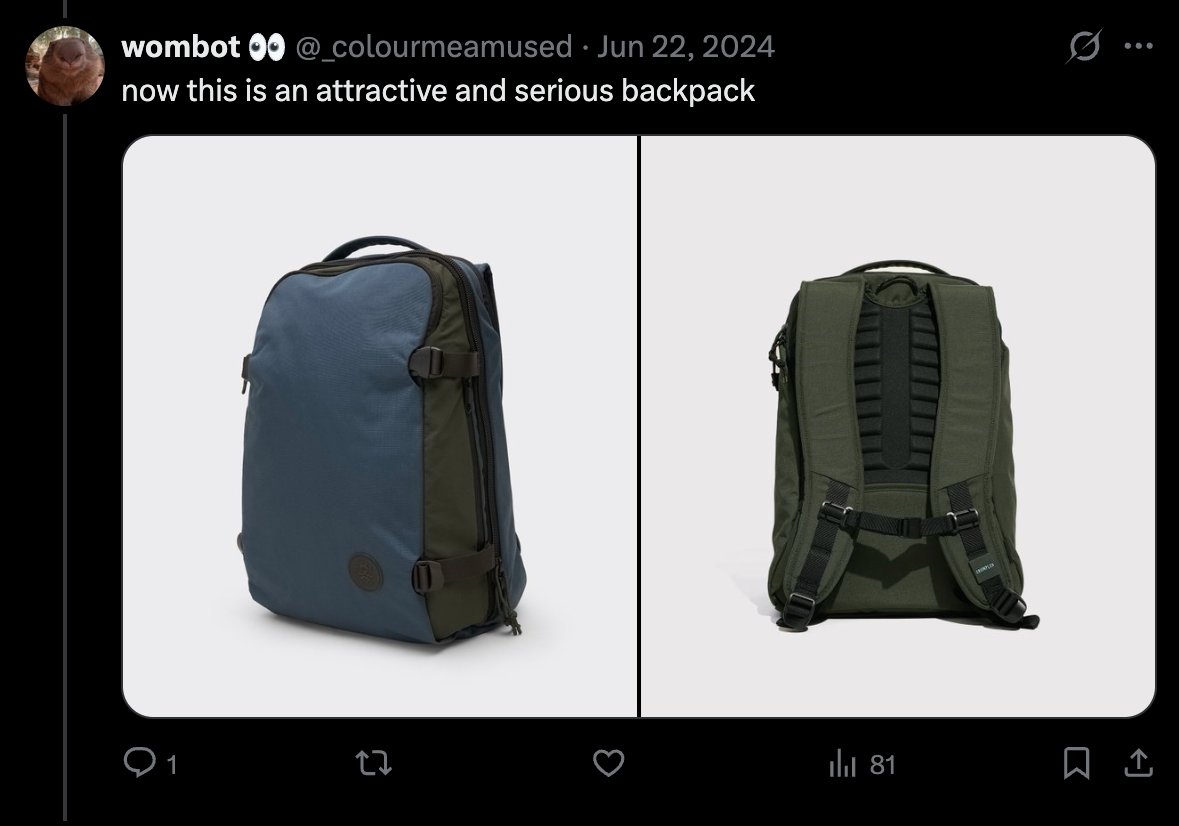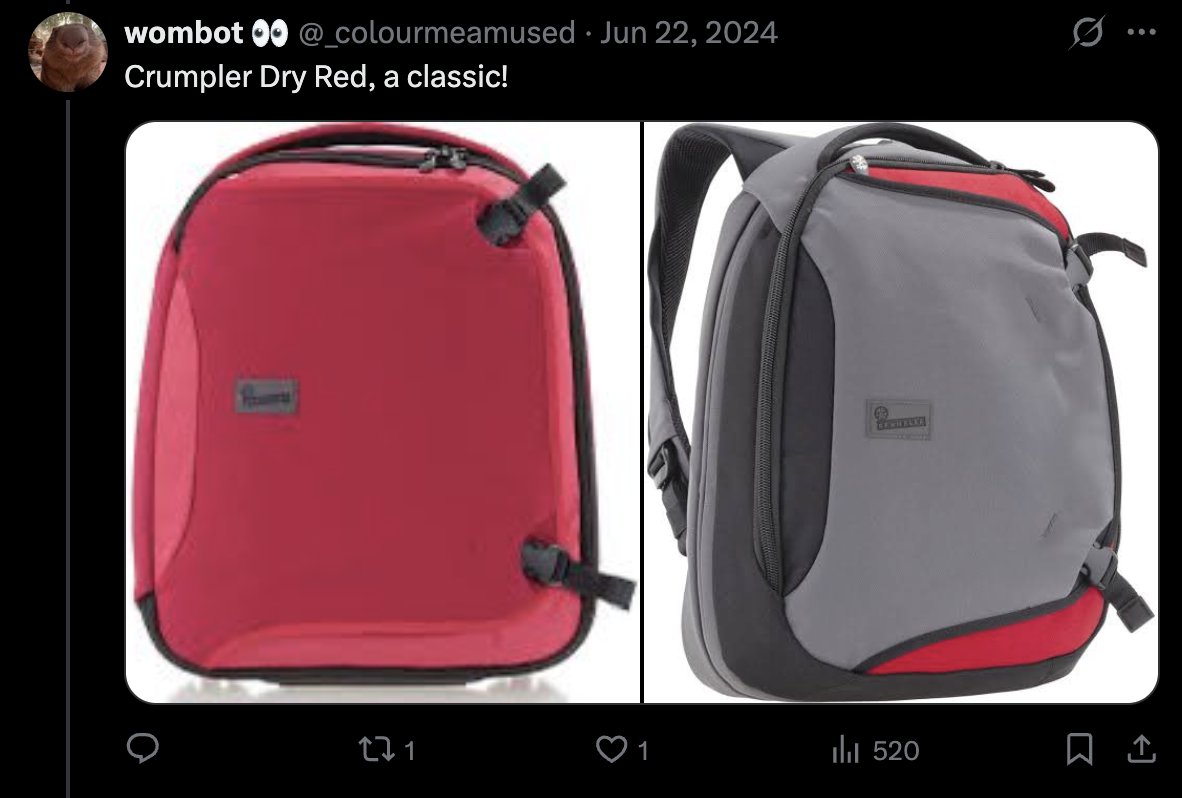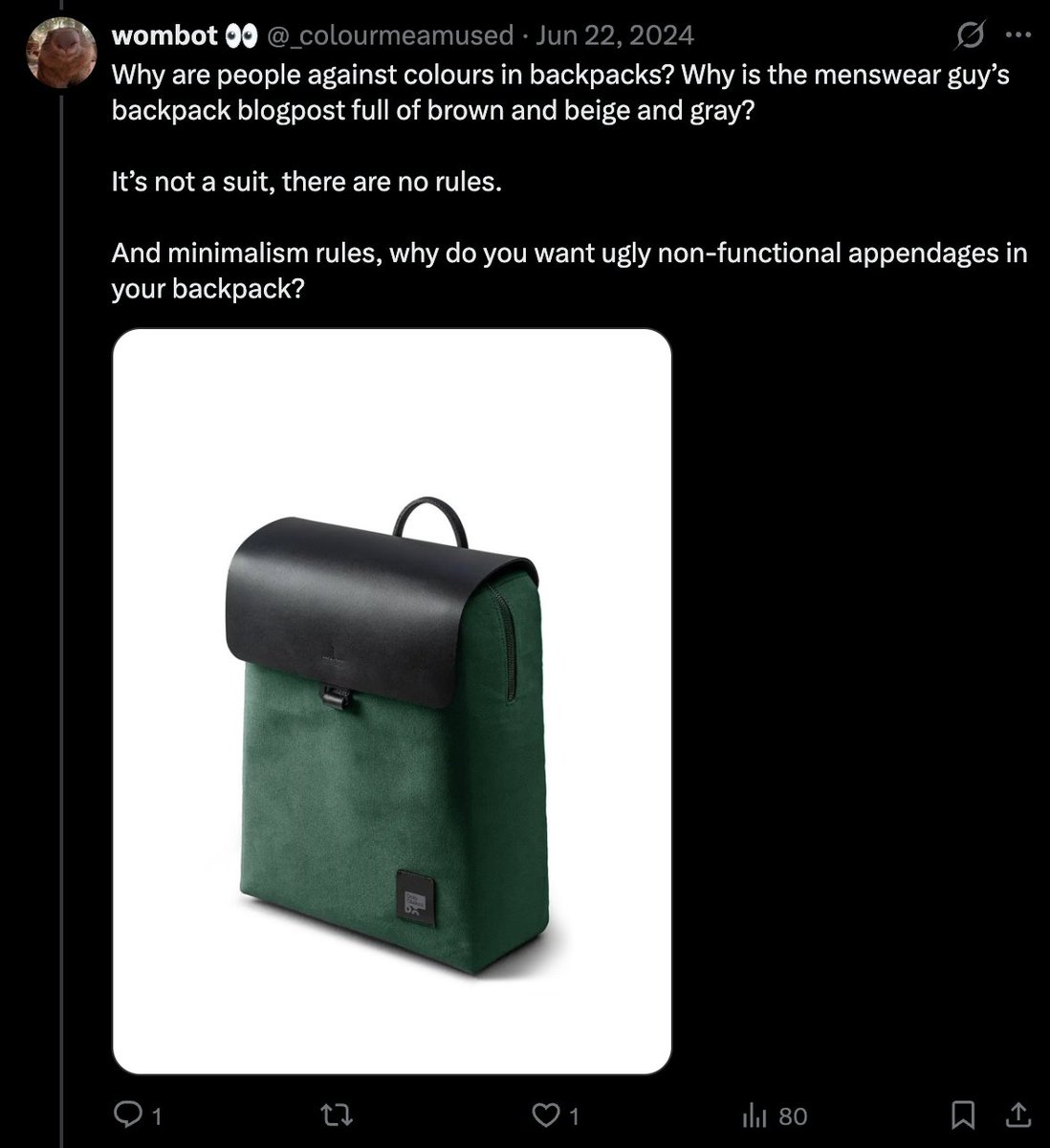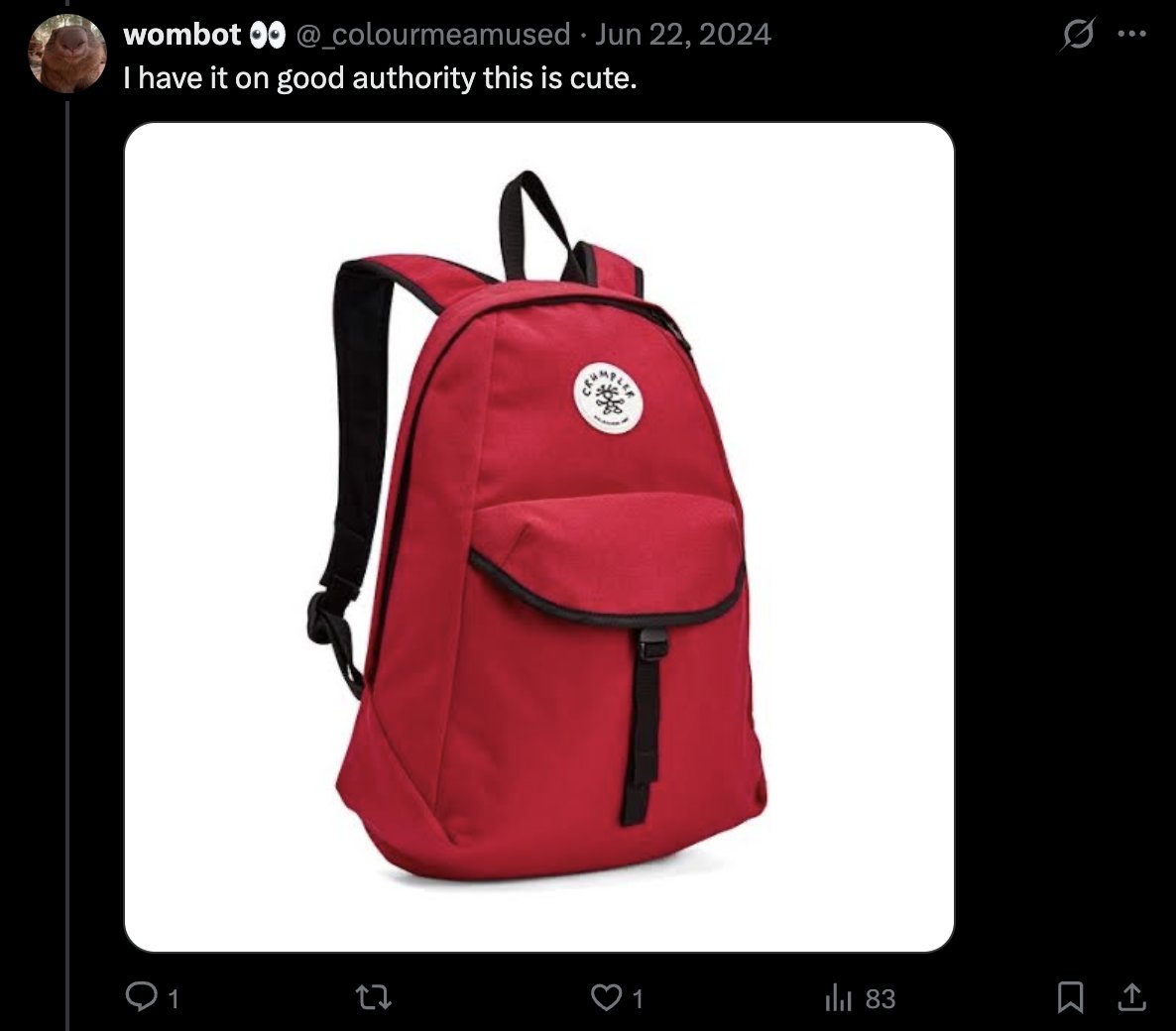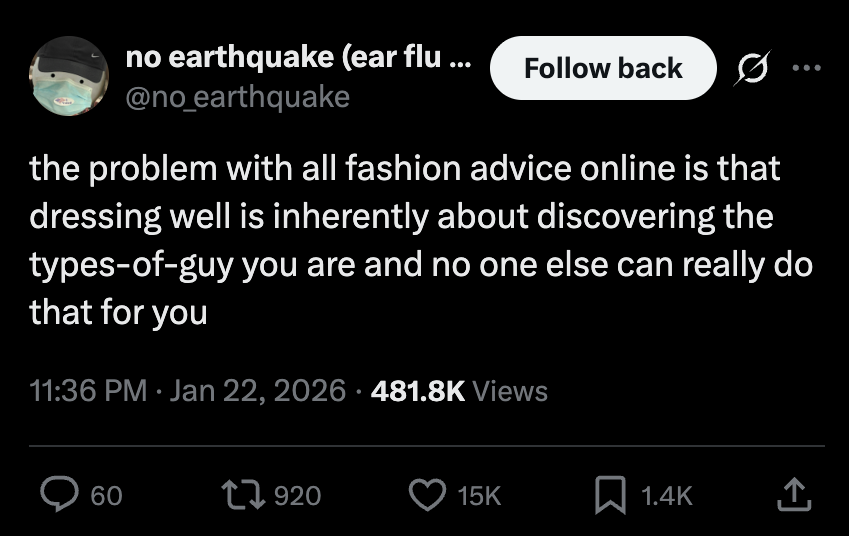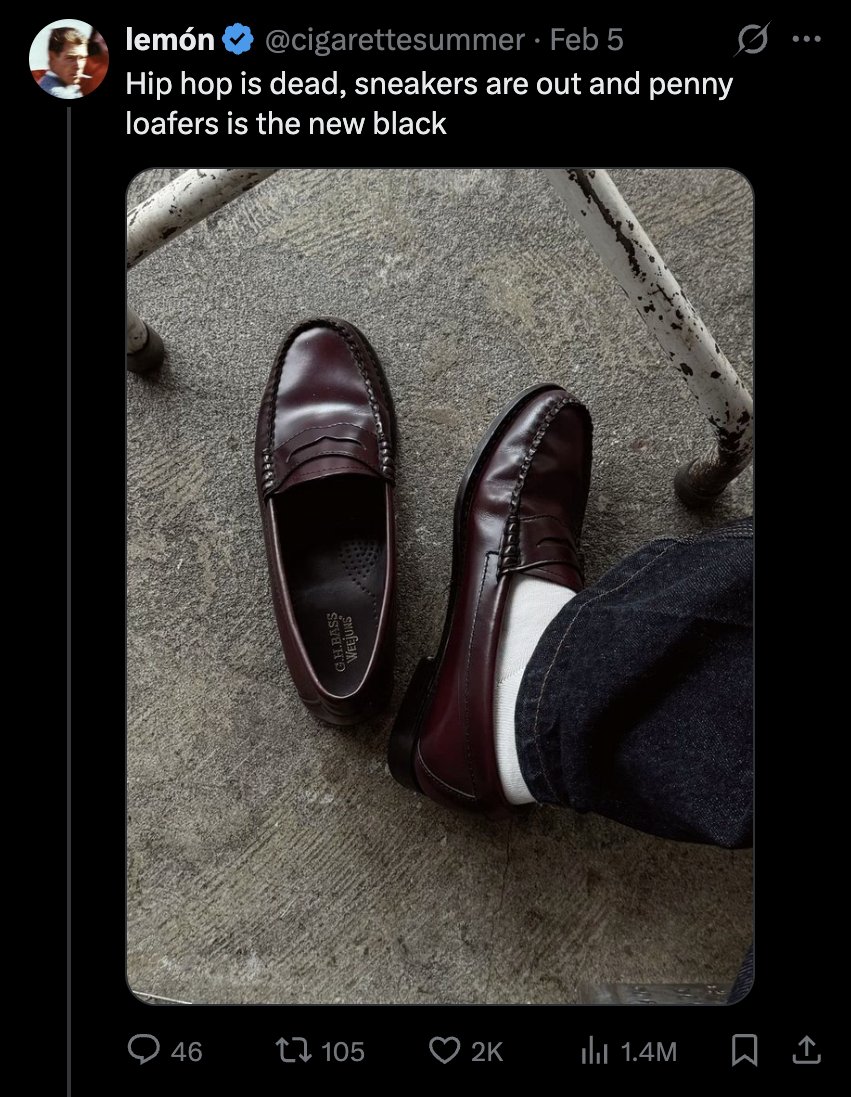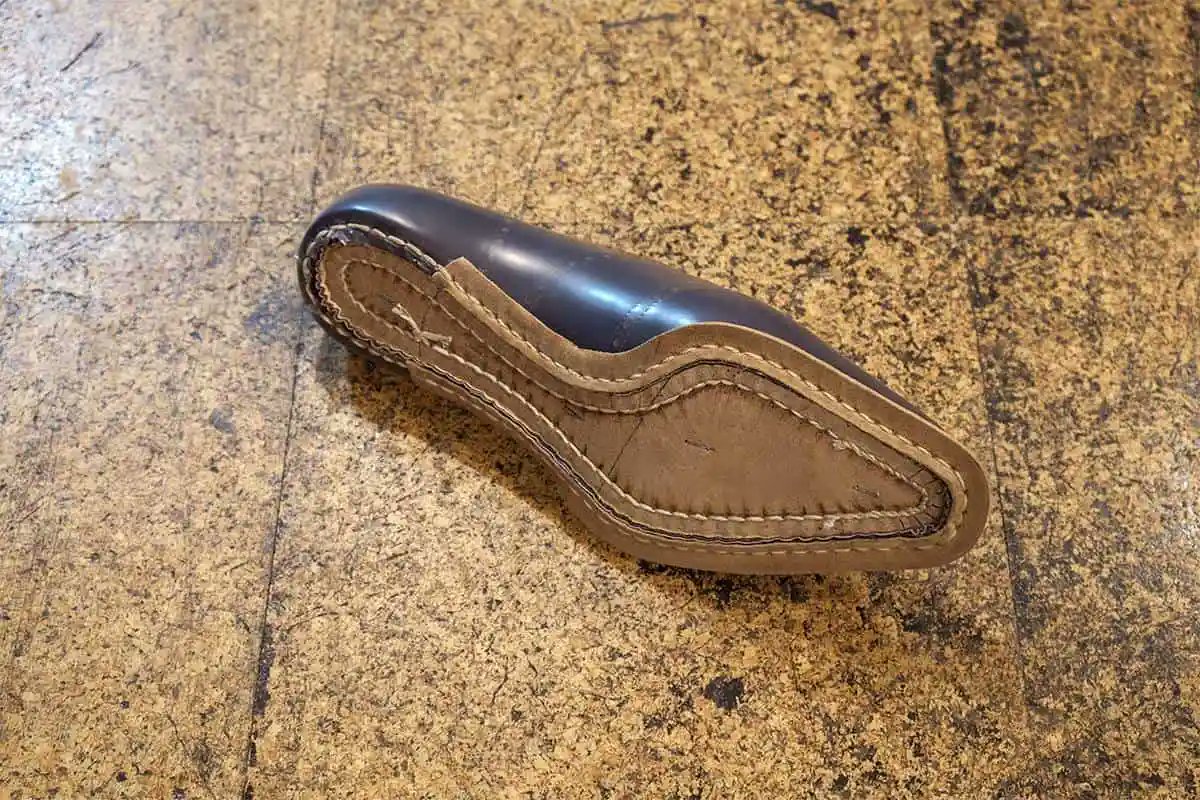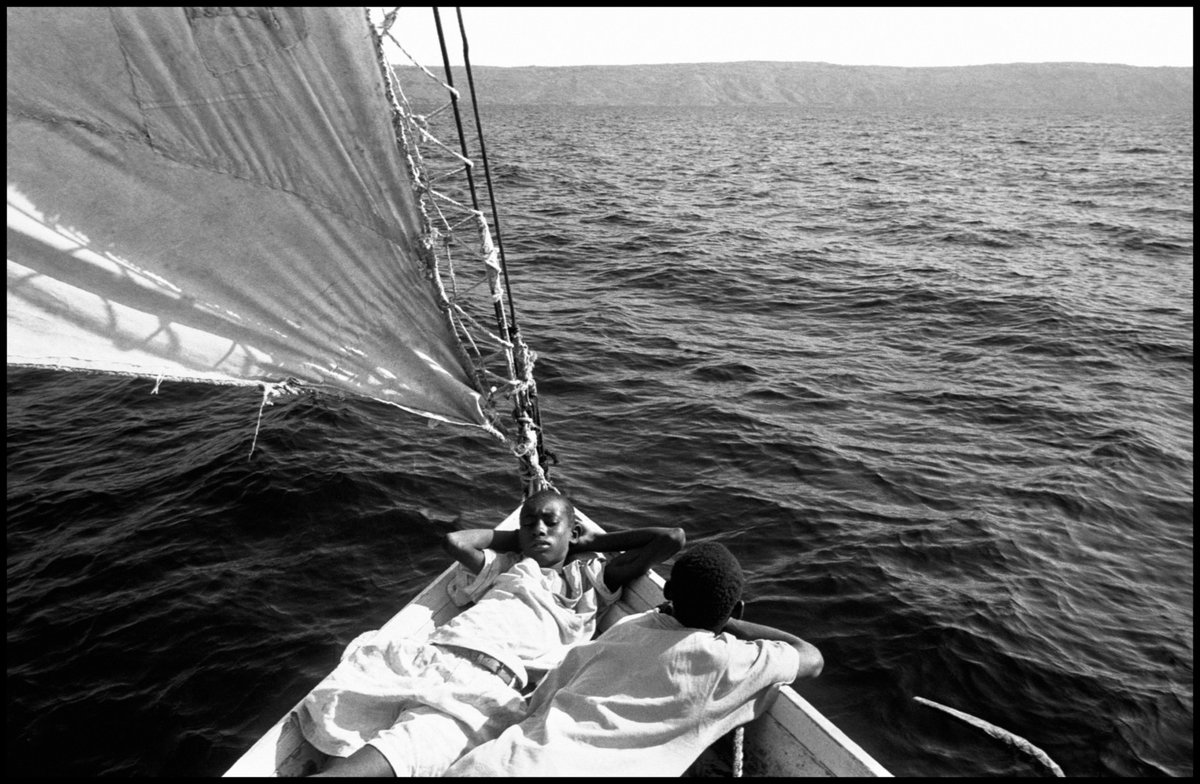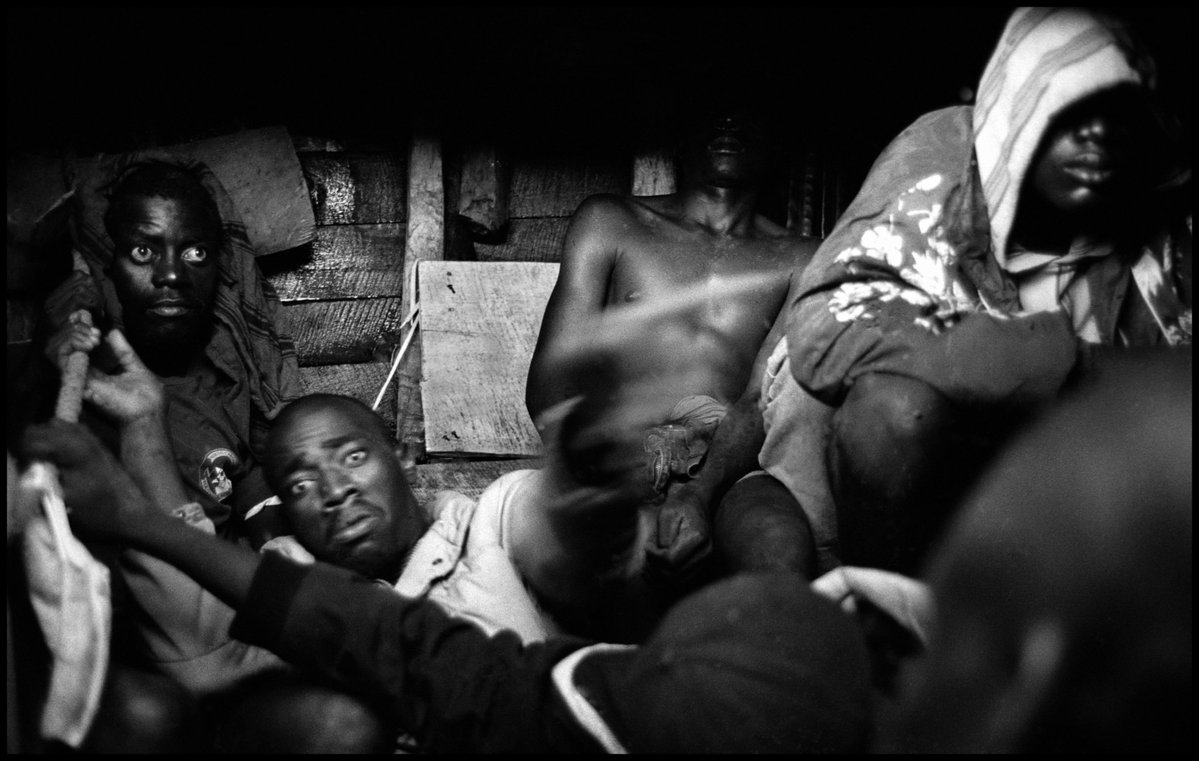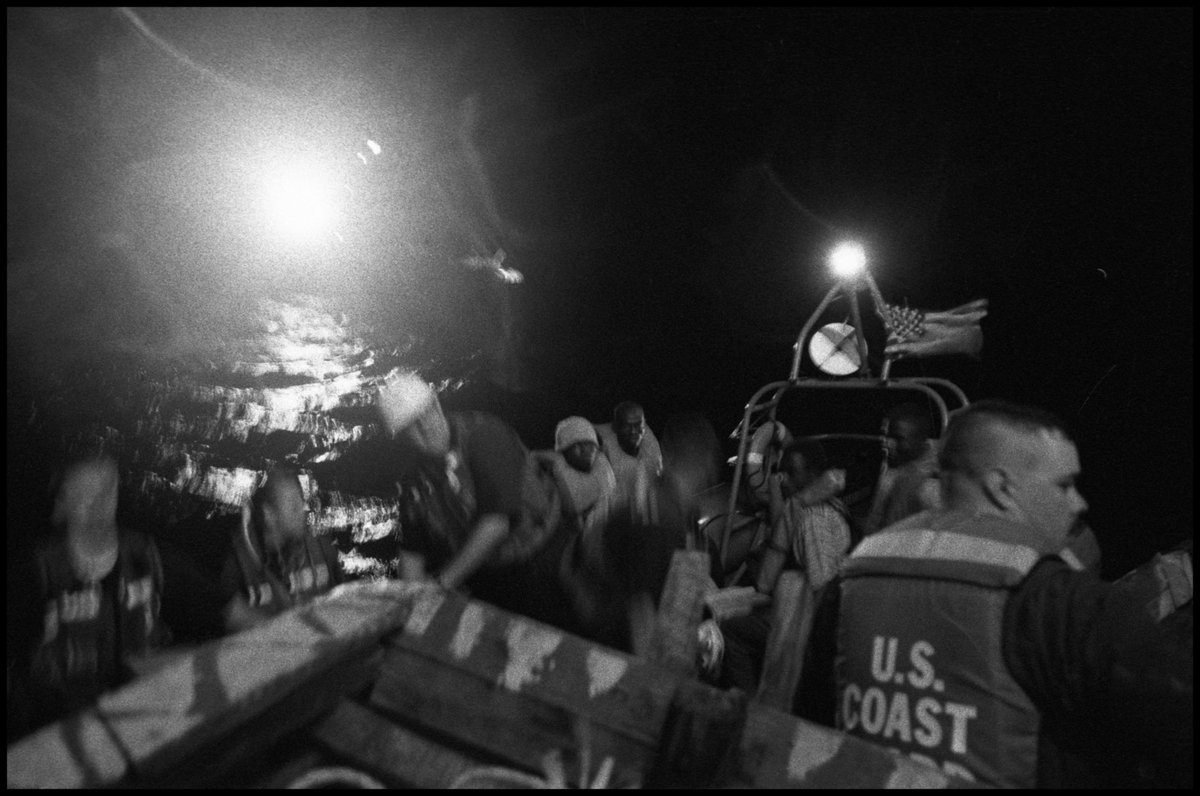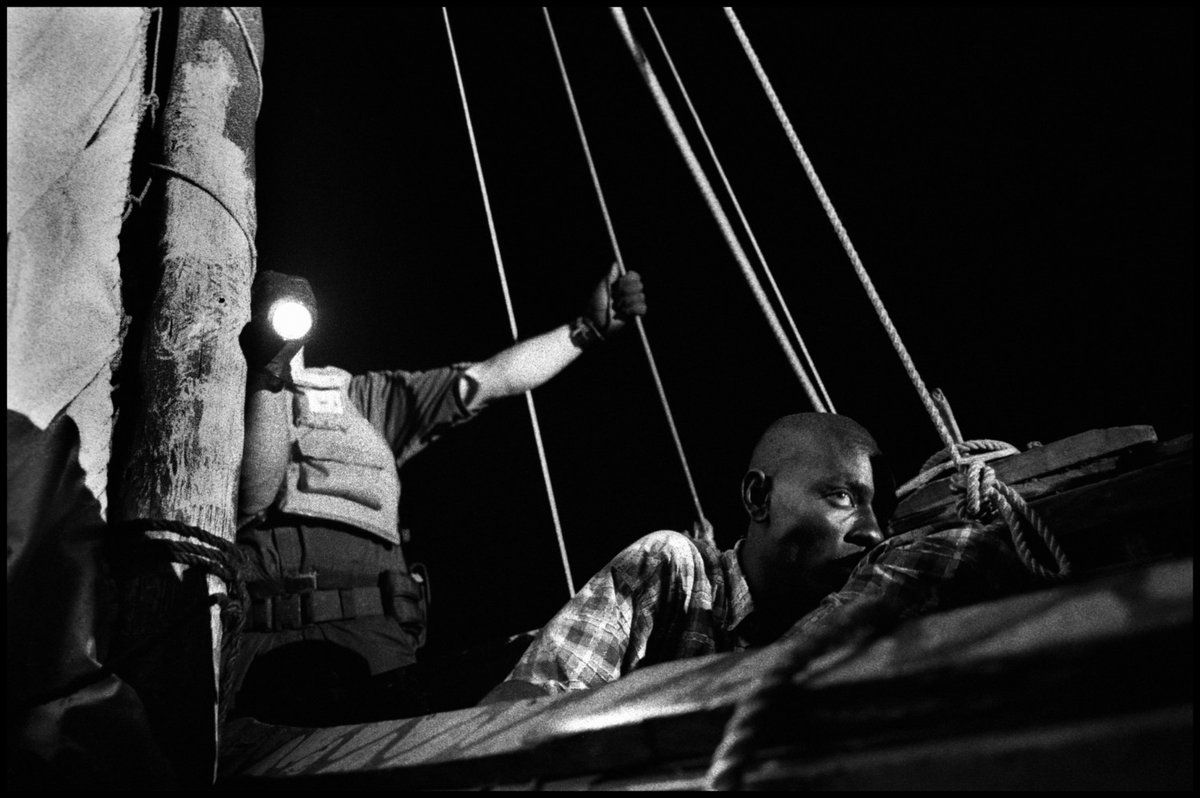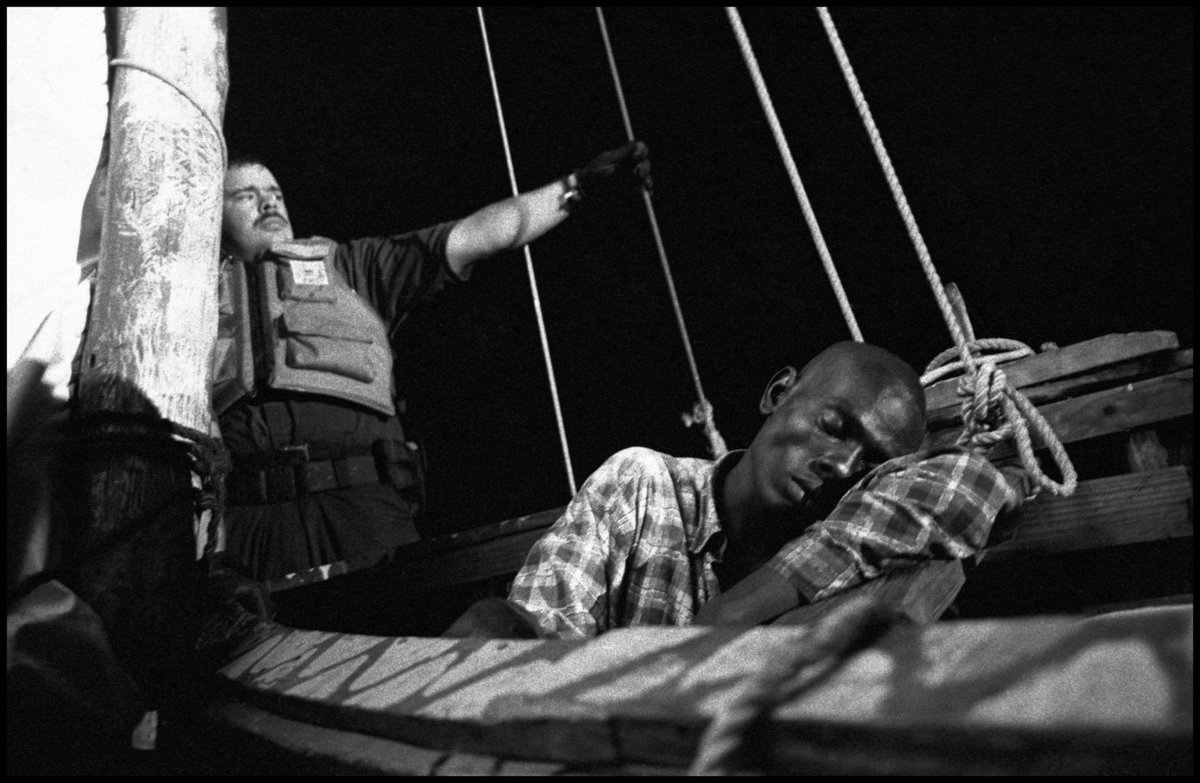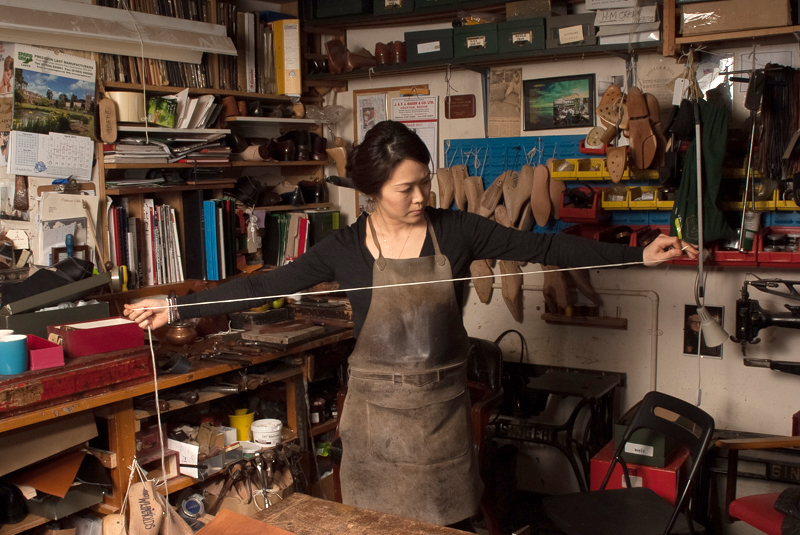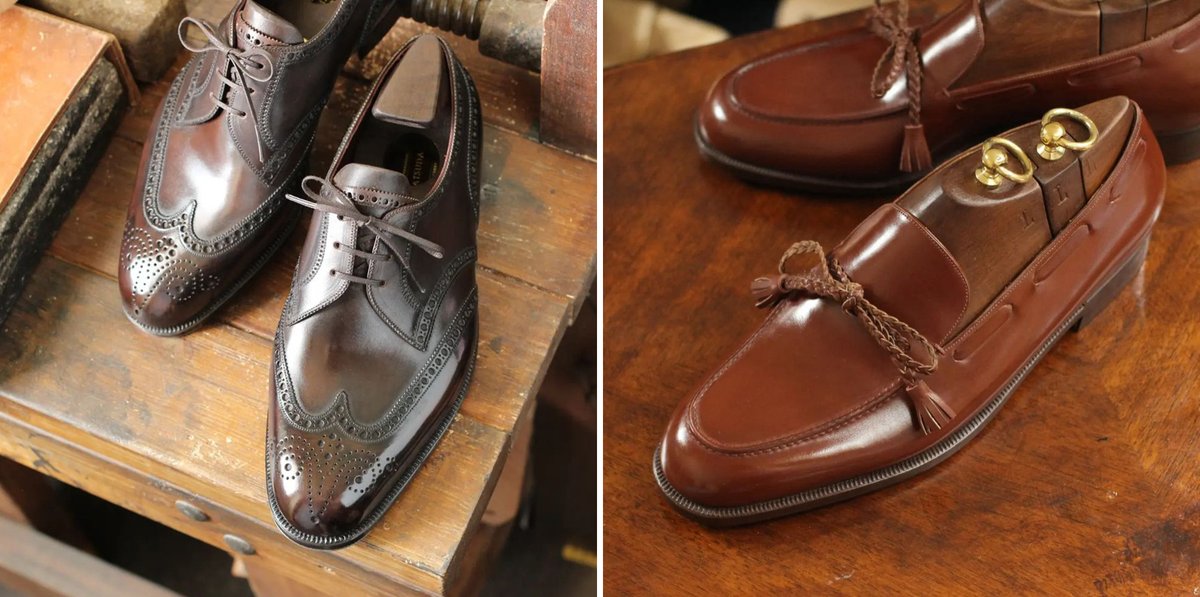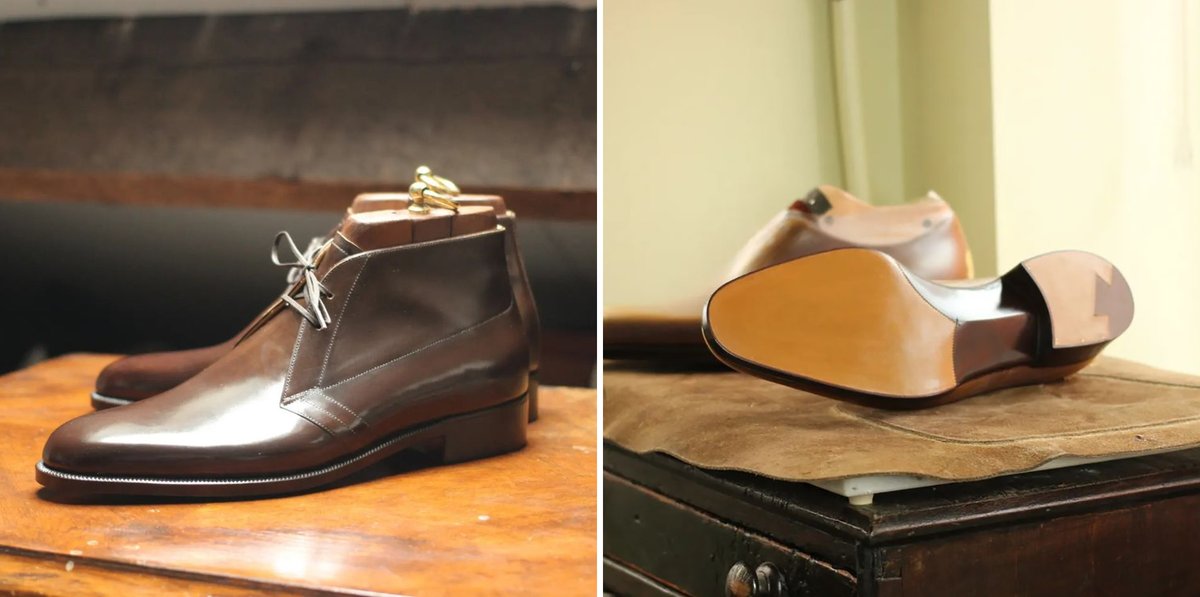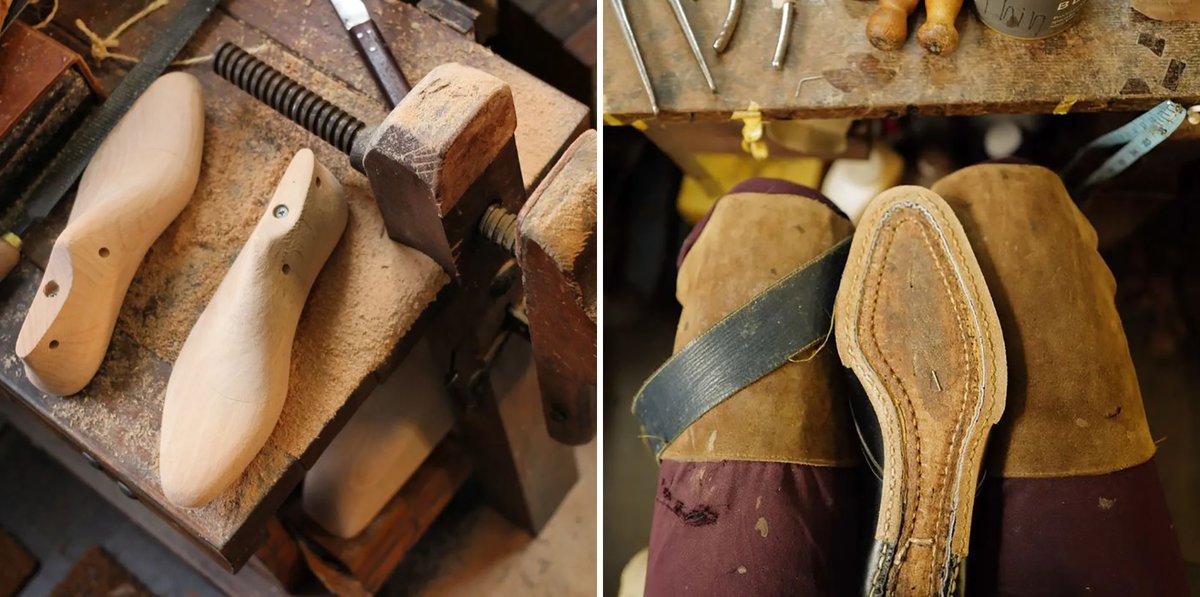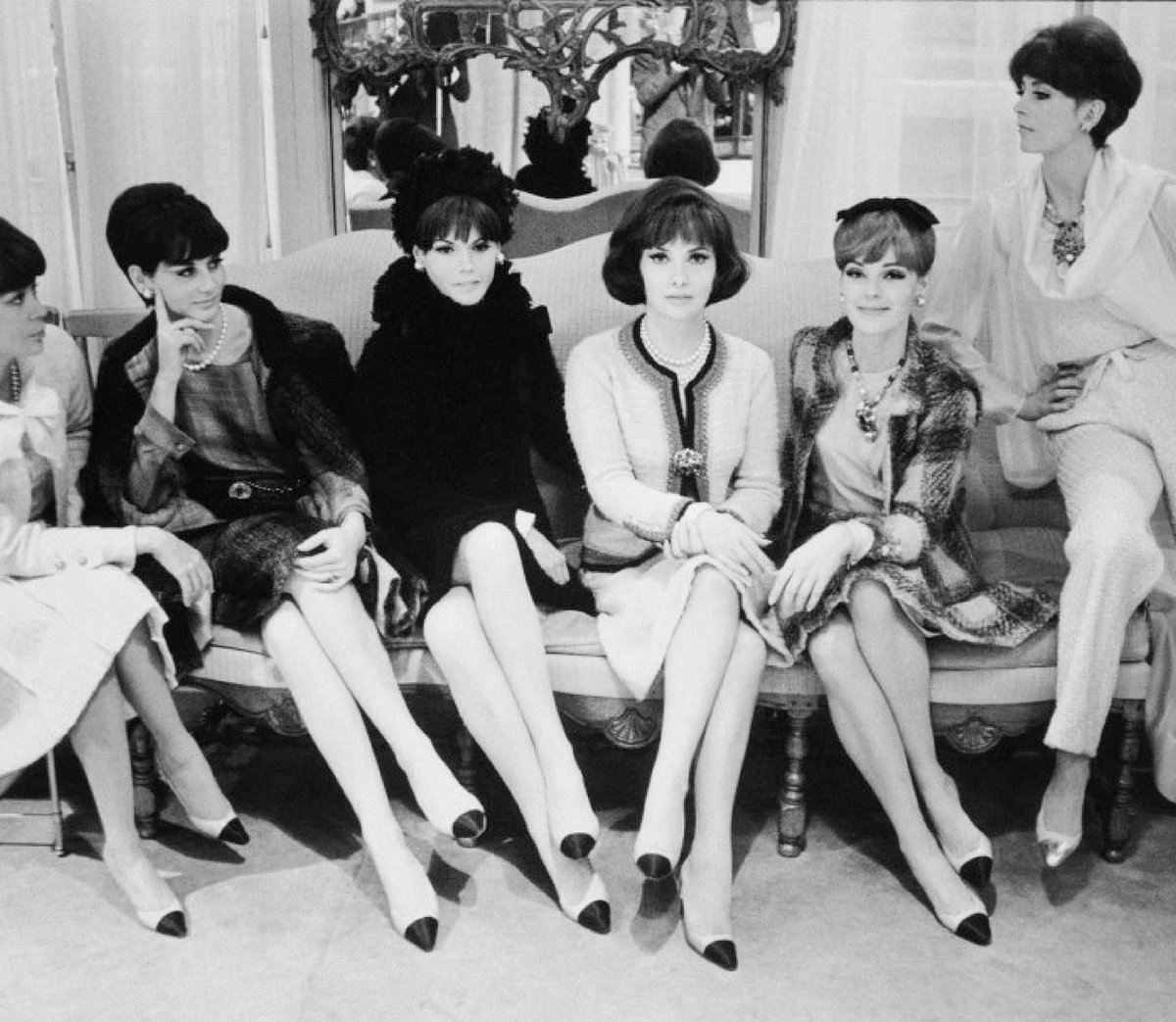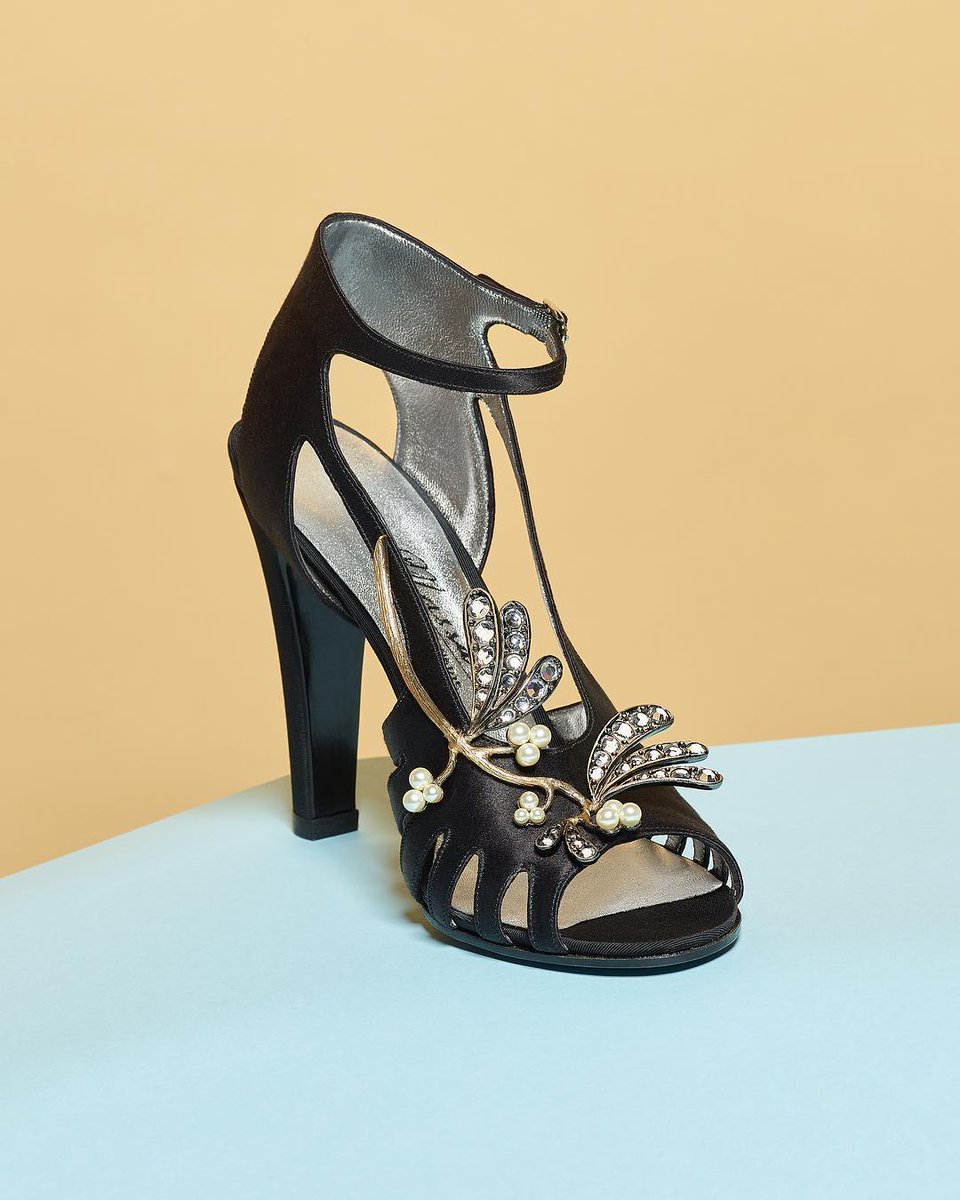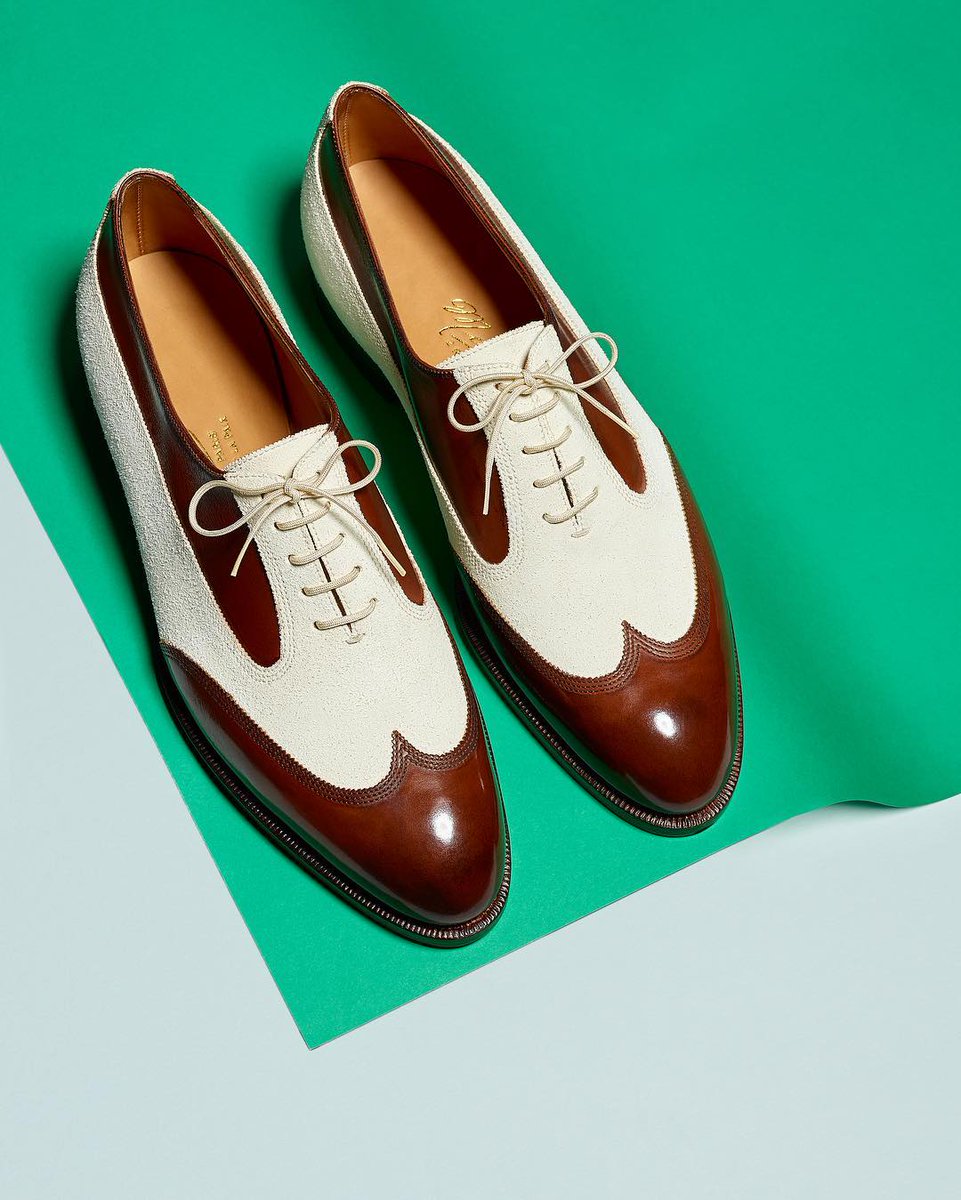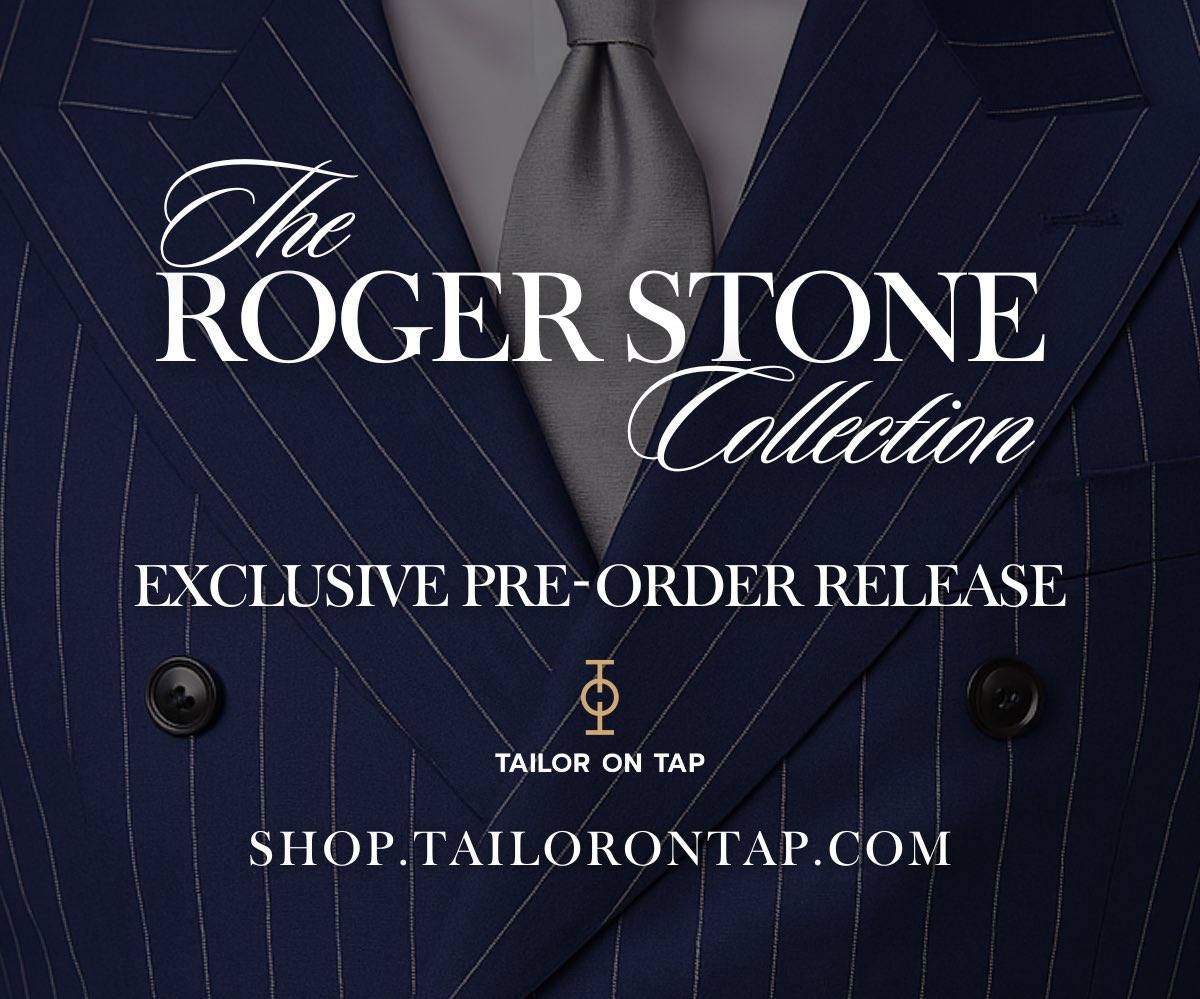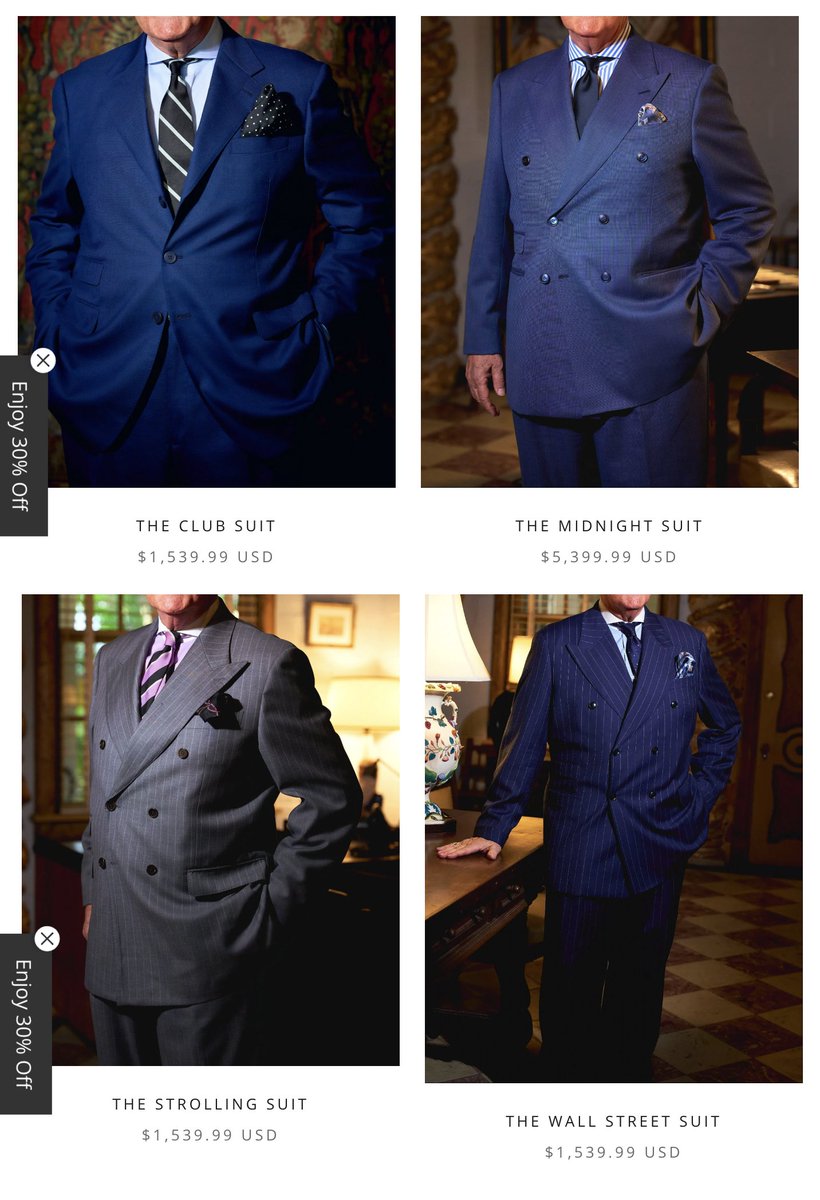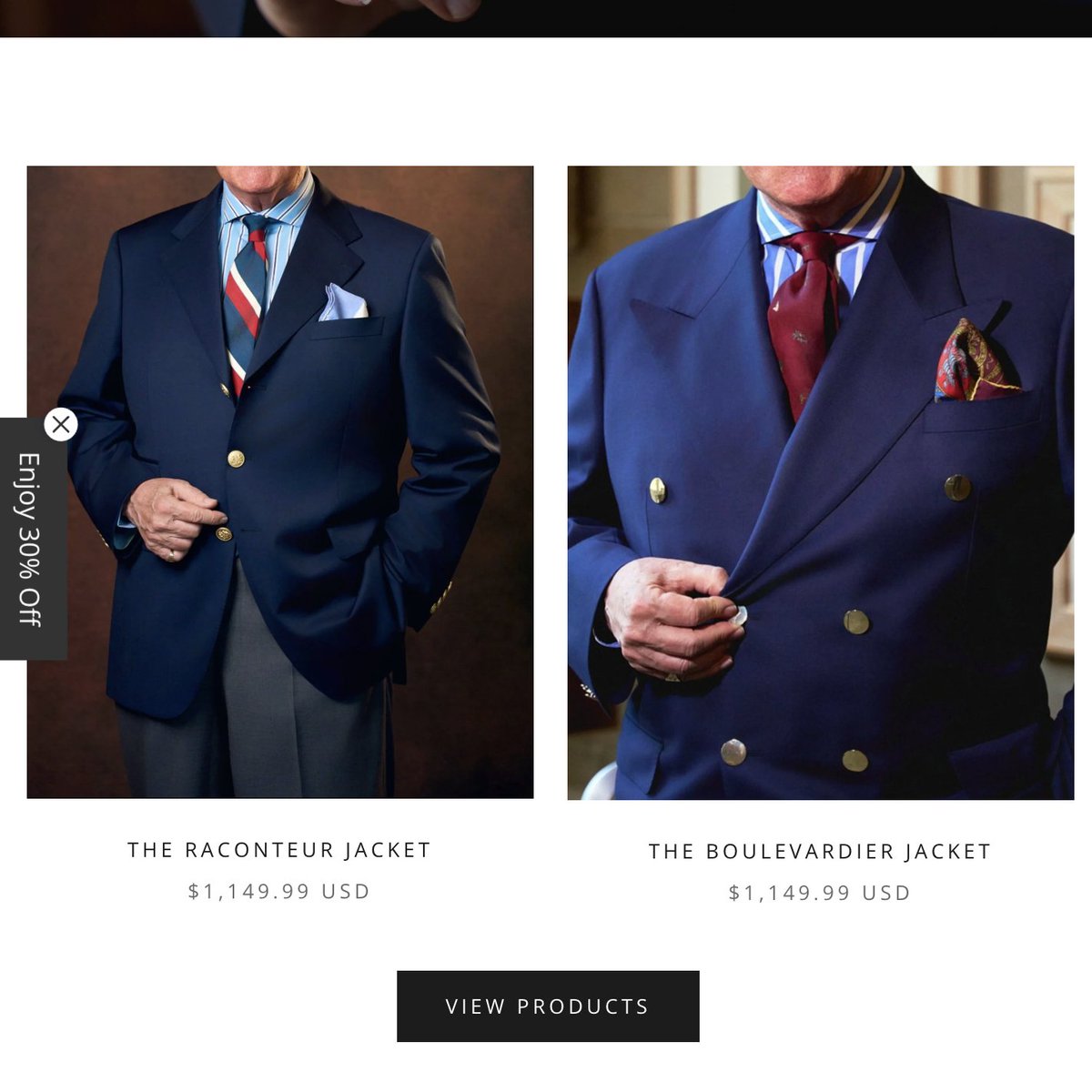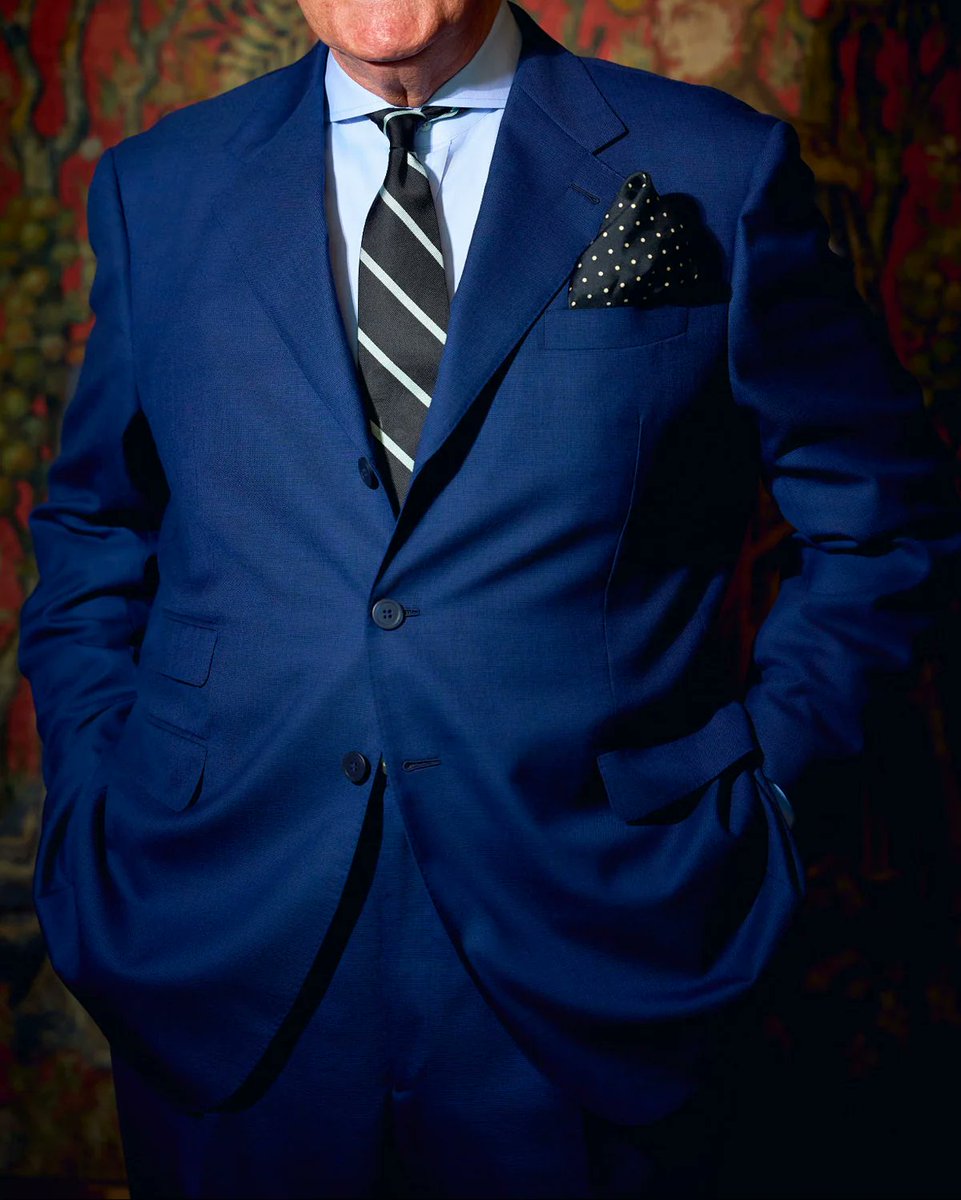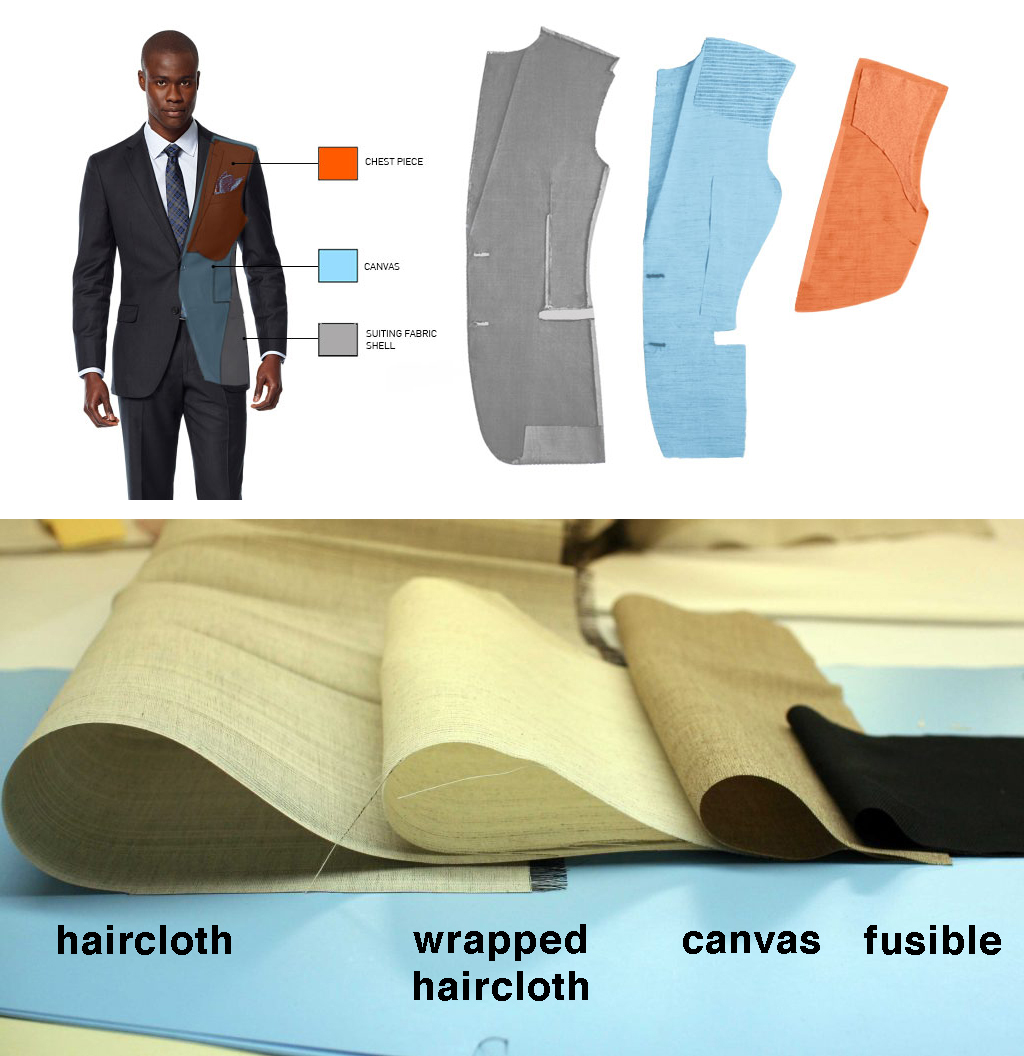I don't know who Milo is talking about here, but since he has expressed pride in British culture, here are the ways in which his outfit violates British traditions. 🧵

https://twitter.com/Nero/status/1801574251042062341

The first and most obvious is that Milo has fastened the bottom-most button on his jacket, something that British men have known not to do since King Edward VI supposedly left his undone (and his courtiers followed). This button is a vestigial detail—not meant to be used.




The second is that the jacket is entirely too small. Look at this suit by Anthony Sinclair, a legendary British tailor who created a pared-down style known as the "Conduit Cut" (called so bc Sinclair was located on Conduit Street when he tailored for Connery). Note clean lines.




A distinguishing mark of quality British tailoring—and, indeed, tailoring all over the world—is that the jacket doesn't pull, particularly around the buttons. Caine can comfortably fit his hand into his coat, but Milo's coat barely contains him.



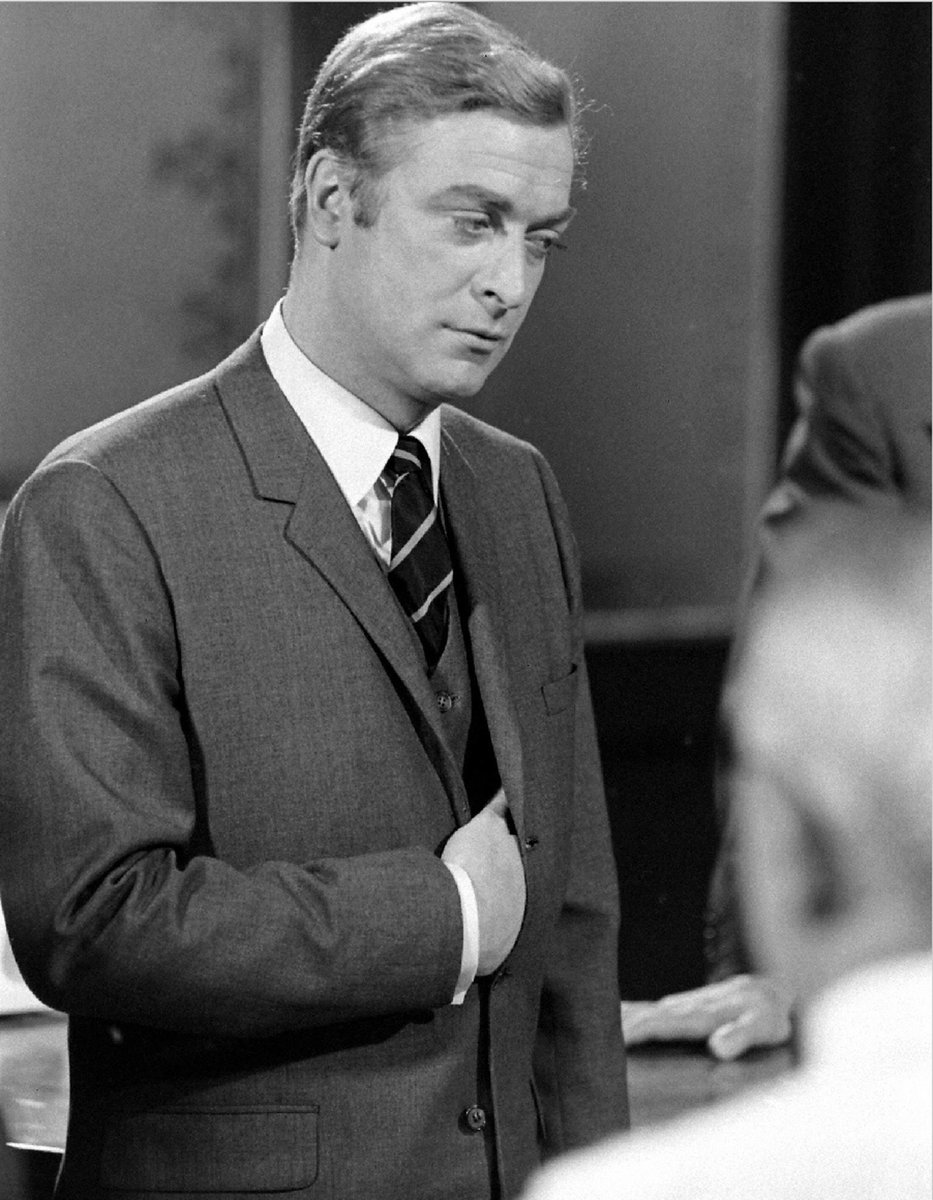
Milo's outfit violates another basic principle of British dress. Here, he's wearing a brown tweed with navy chinos.



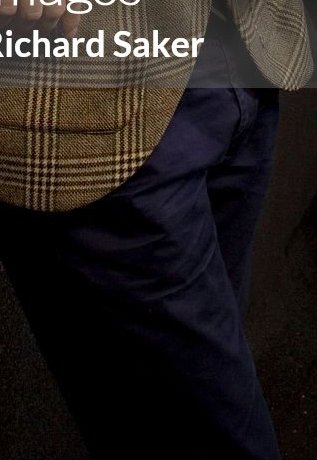
As I've noted many times in the past, our understanding of traditional tailoring largely derives from British culture, particularly that period in which men had wardrobes divided between city and country. Every detail conveyed something. Navy was city; brown country.


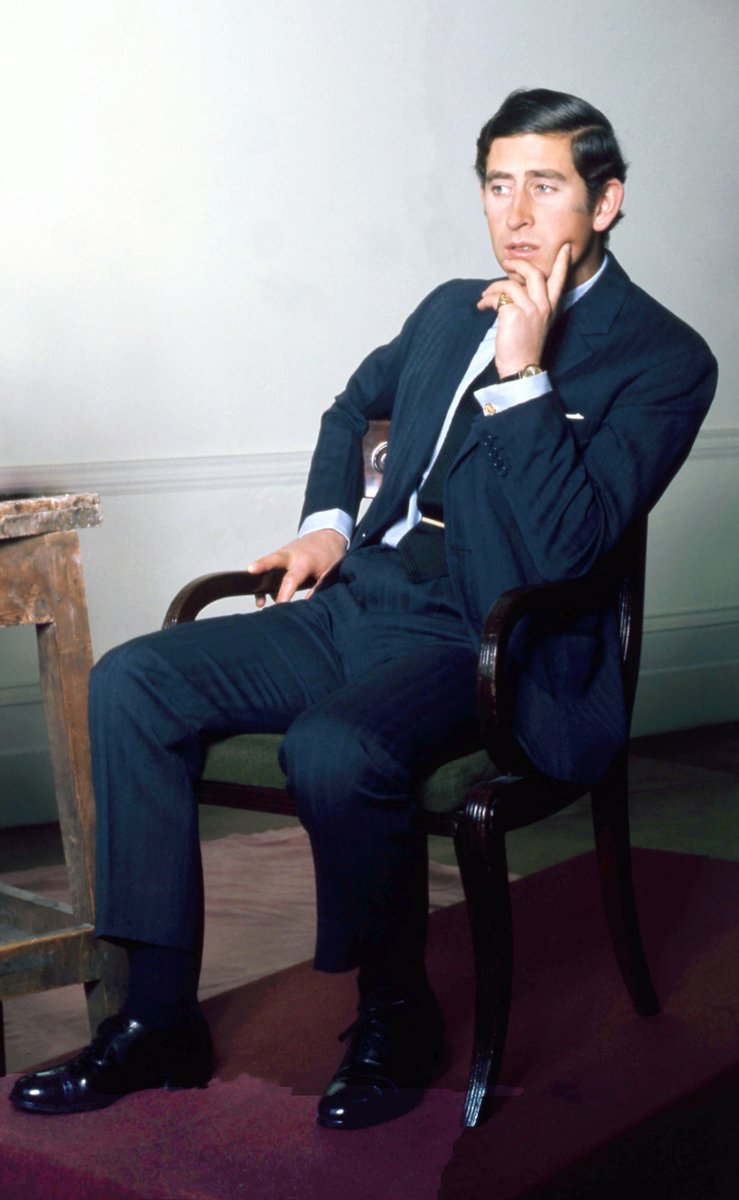
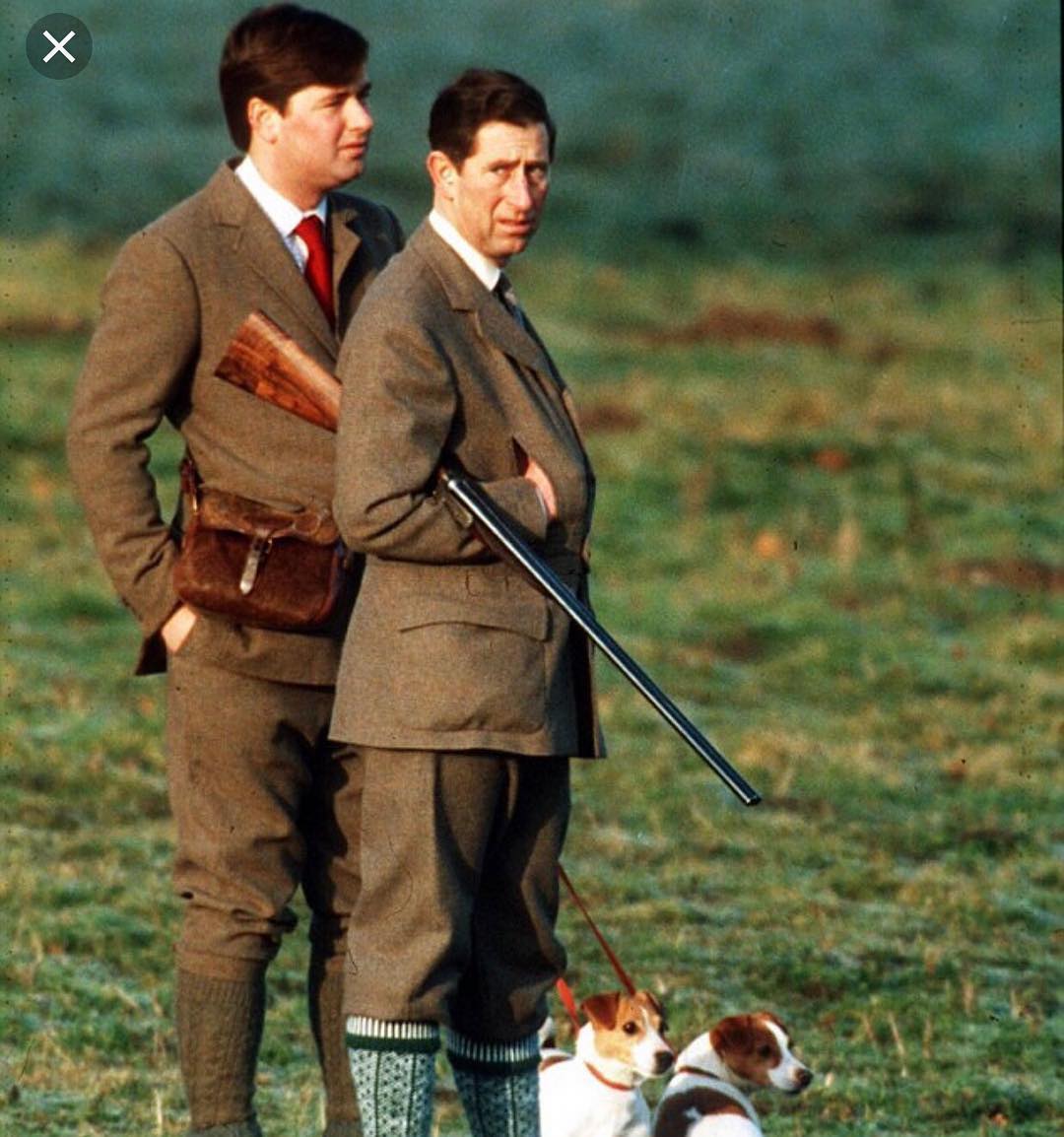
Anyone familiar with British culture knows that brown tweeds should be worn with things such as taupe trousers cut from rustic materials such as cavalry twill or whipcord. Not blue chinos. 
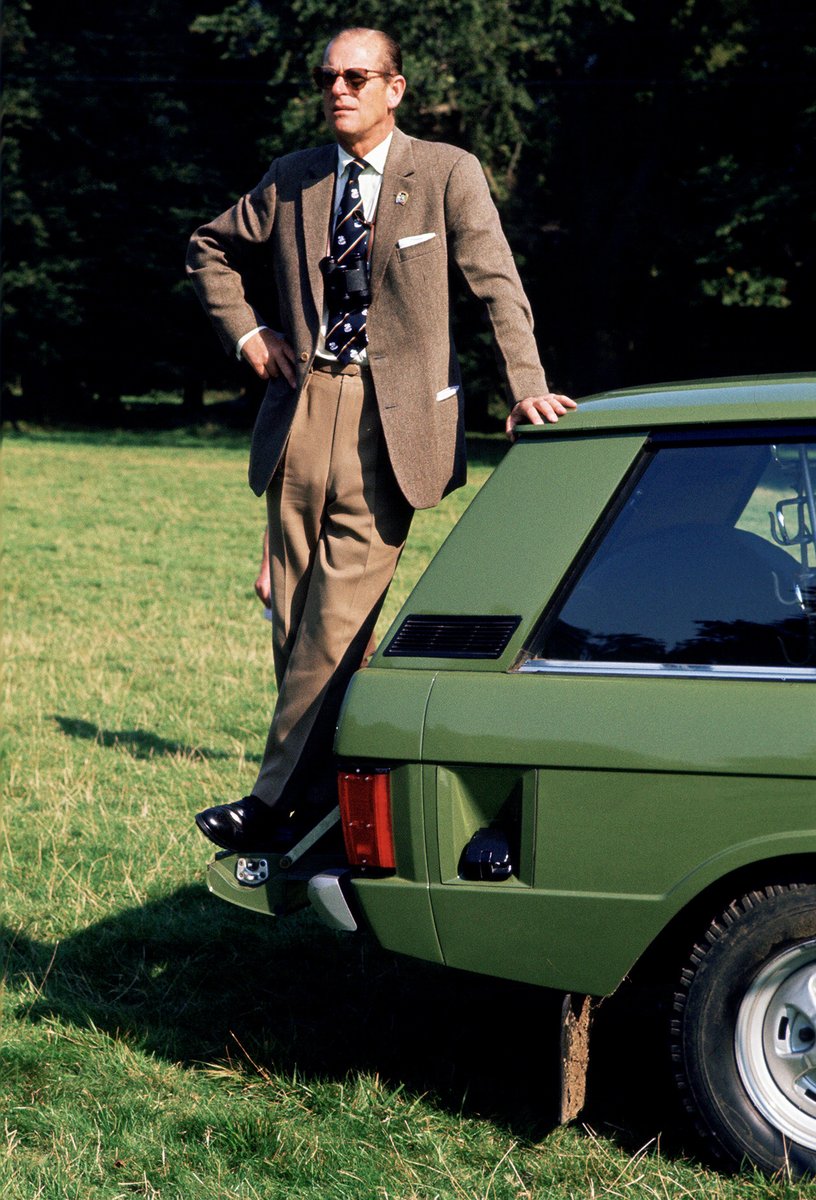
Similarly, button-down collars are an Americanism. The more British choice here would be a semi-spread collar shirt. Milo's shirt collar is especially bad because the collar points are small and dinky. The buttonholes are also made with contrast thread—a mark of bad taste.




His jacket also demonstrates a lack of familiarity with British culture in that it has peak lapels and three patch pockets—two at the hips and one at the breast.



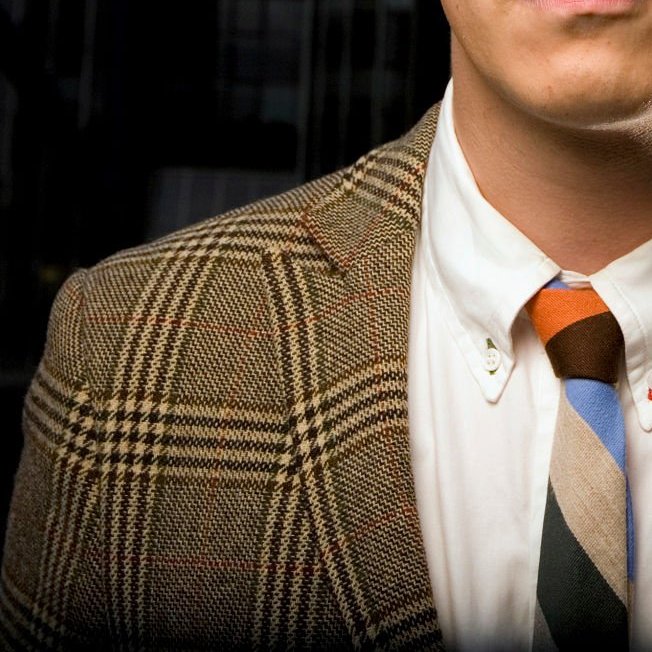
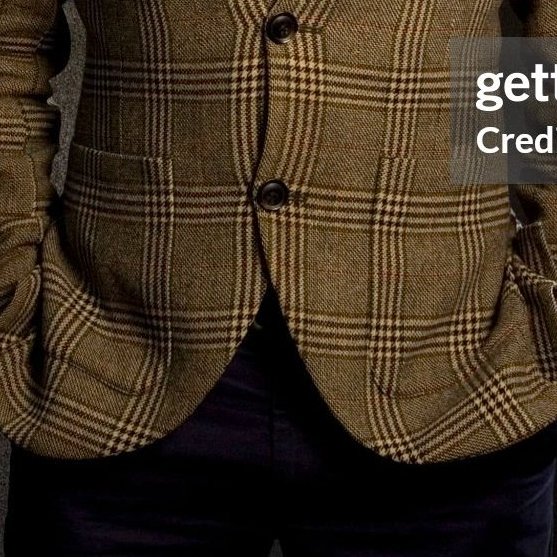
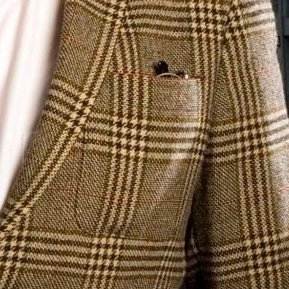
In traditional British tailoring, every detail has meaning. Peak lapels are a formal detail primarily reserved for dinner suits, business suits, and "city attire." Patch pockets are a casual detail typically reserved for country and leisure clothes.


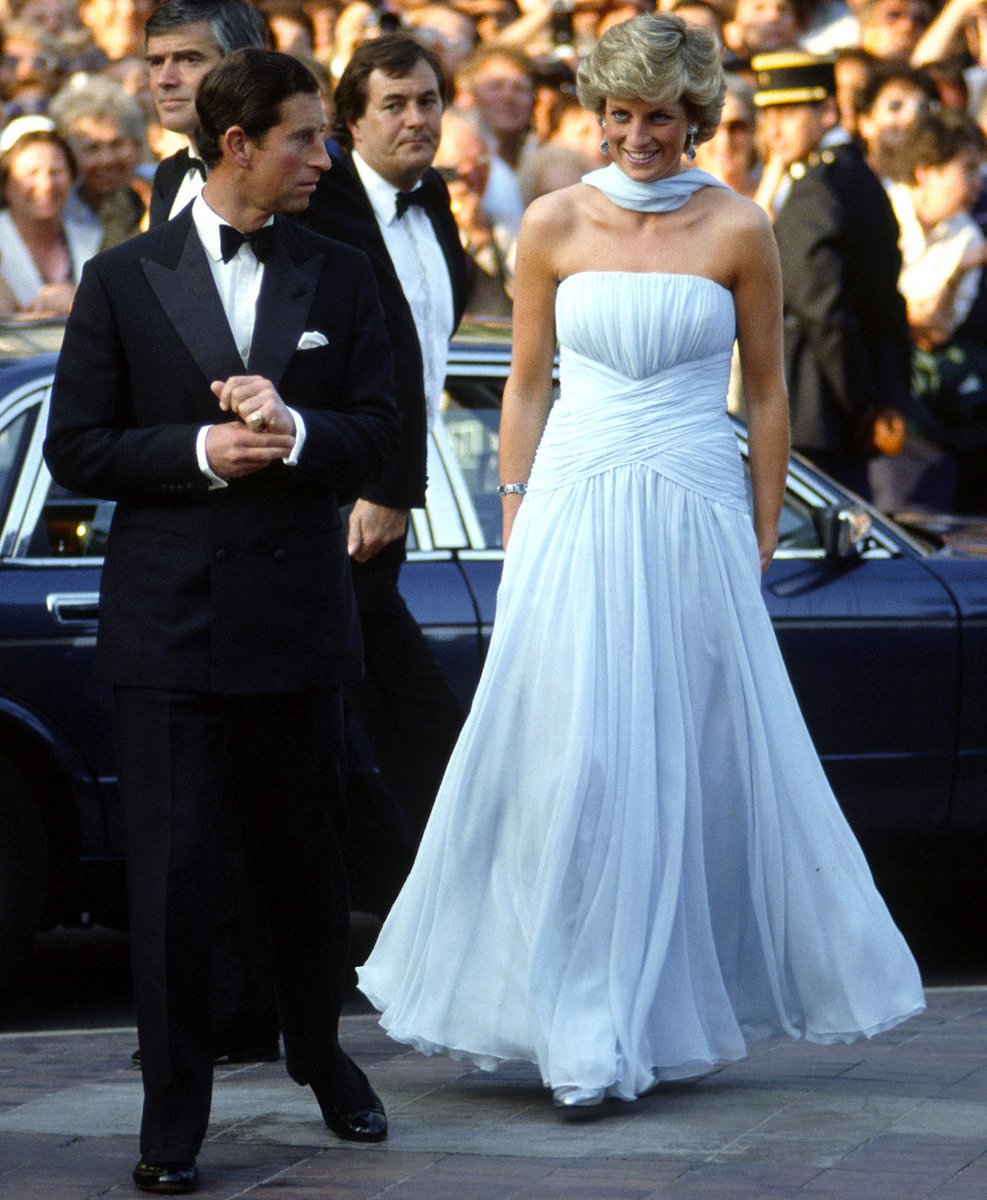
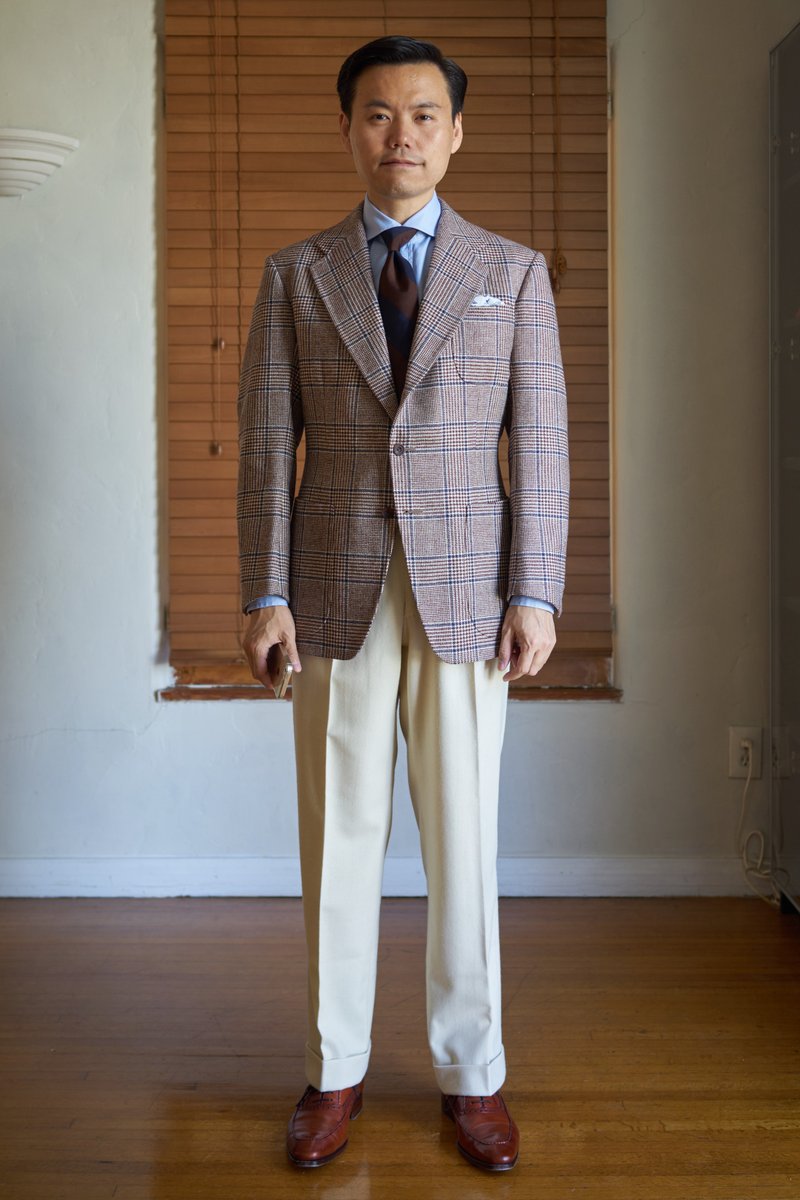
English actor Edward Fox understood this. See how his grey worsted suit with cloth-covered buttons has peak lapels (all formal details) while his rustic tweed has notch lapels. Certainly, he wouldn't be ignorant enough to put peak lapels on a triple-patch pocket jacket.



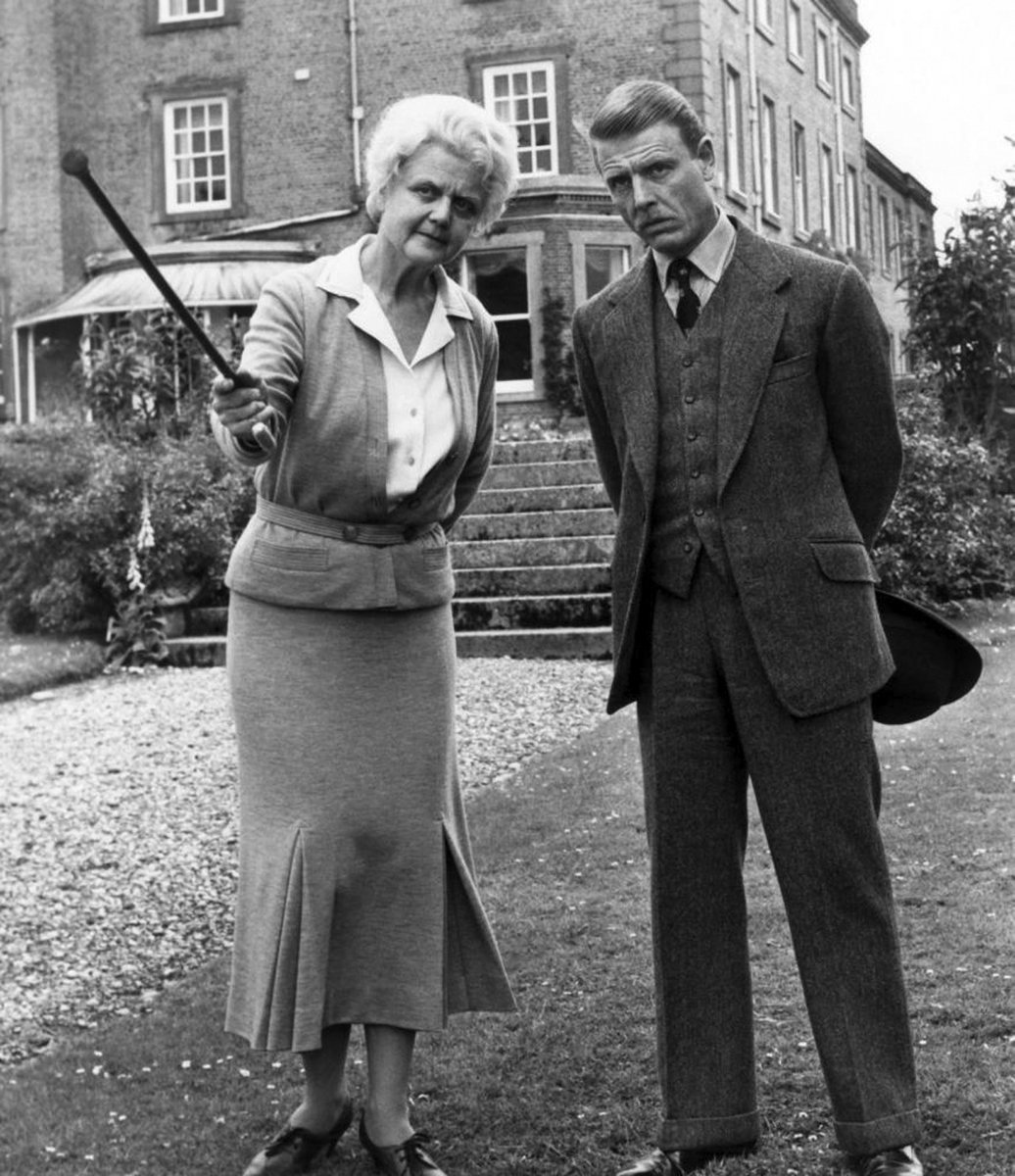
There's also the tie. In British culture, regimental striped ties typically denote membership in some organization, often a school or part of the military. For example, The tie below signals that the wearer is part of The Rifles, an infantry regiment of the British Army. 
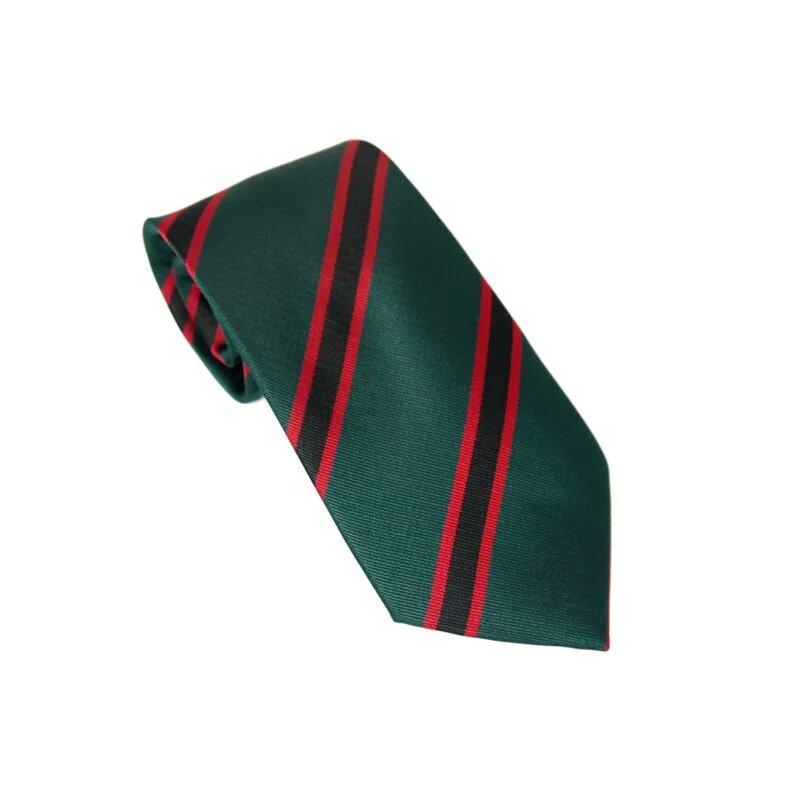
In the early 1900s, Brooks Brothers introduced their version of regimental stripes, which are purely decorative. Not wanting to copy the British, they flipped the direction of the stripes. See how they run in the opposite direction.


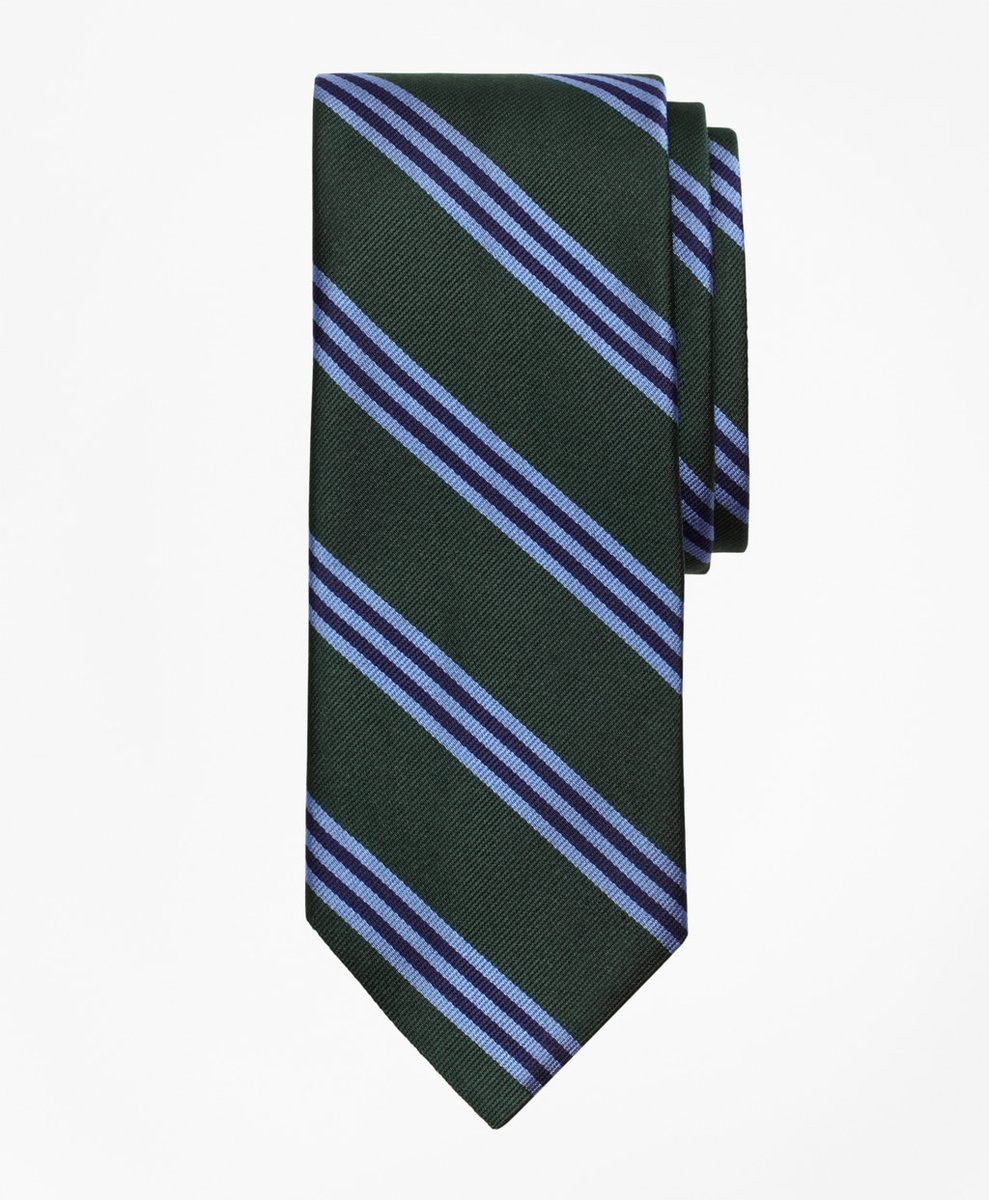
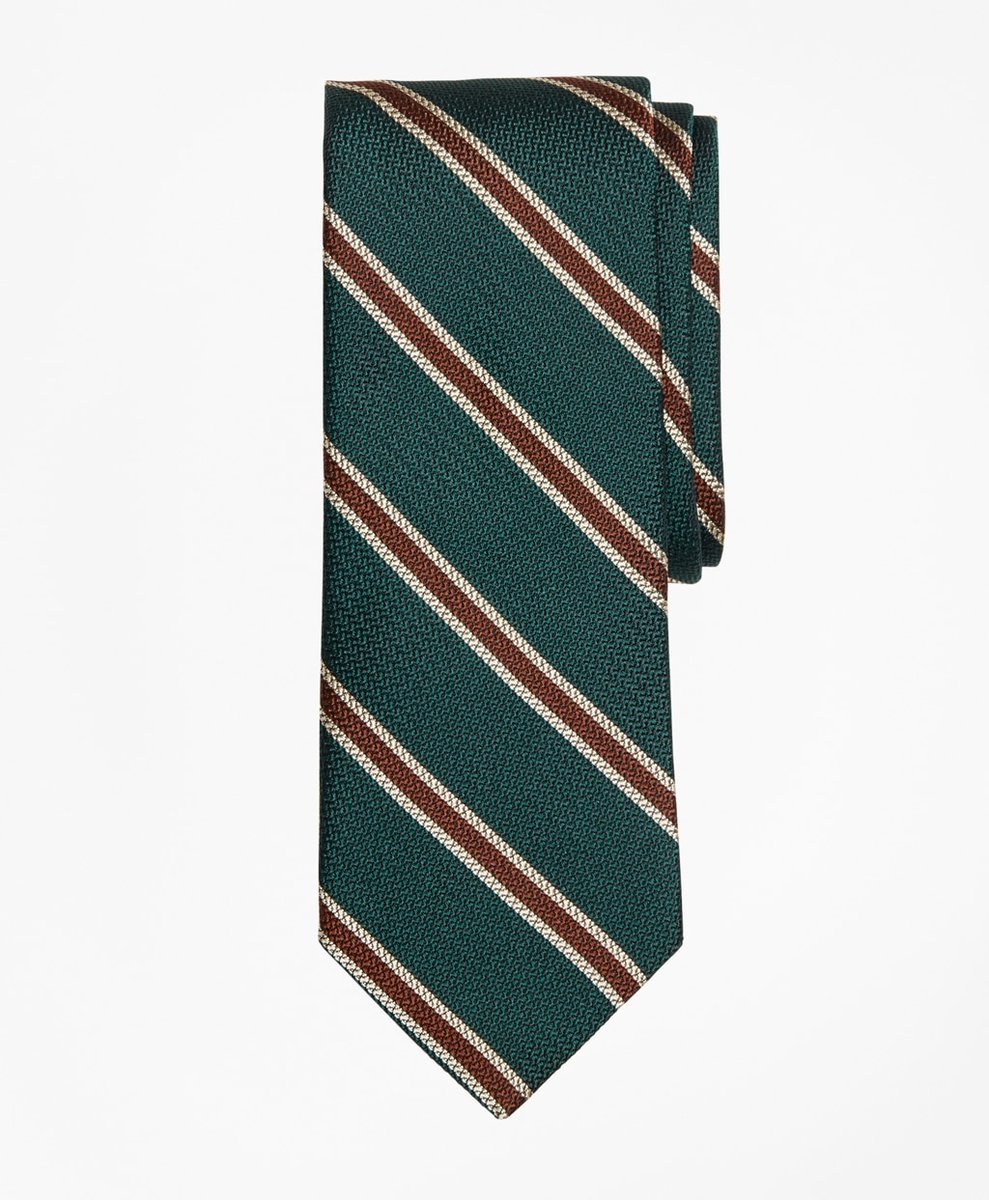
Milo here is wearing a faux regimental stripe that runs in the American direction. It is an odd choice for a British patriot, but it may also be the only option if no British organization will have you. 

In any case, I write this as a non-white immigrant living in an English-speaking country. However, I love British tailoring and American culture. I hope this shows that immigrants can offer something to native-born citizens.
Here are some photos of British men who know about traditional British dress practices. I hope Milo can absorb the information presented in these photos.





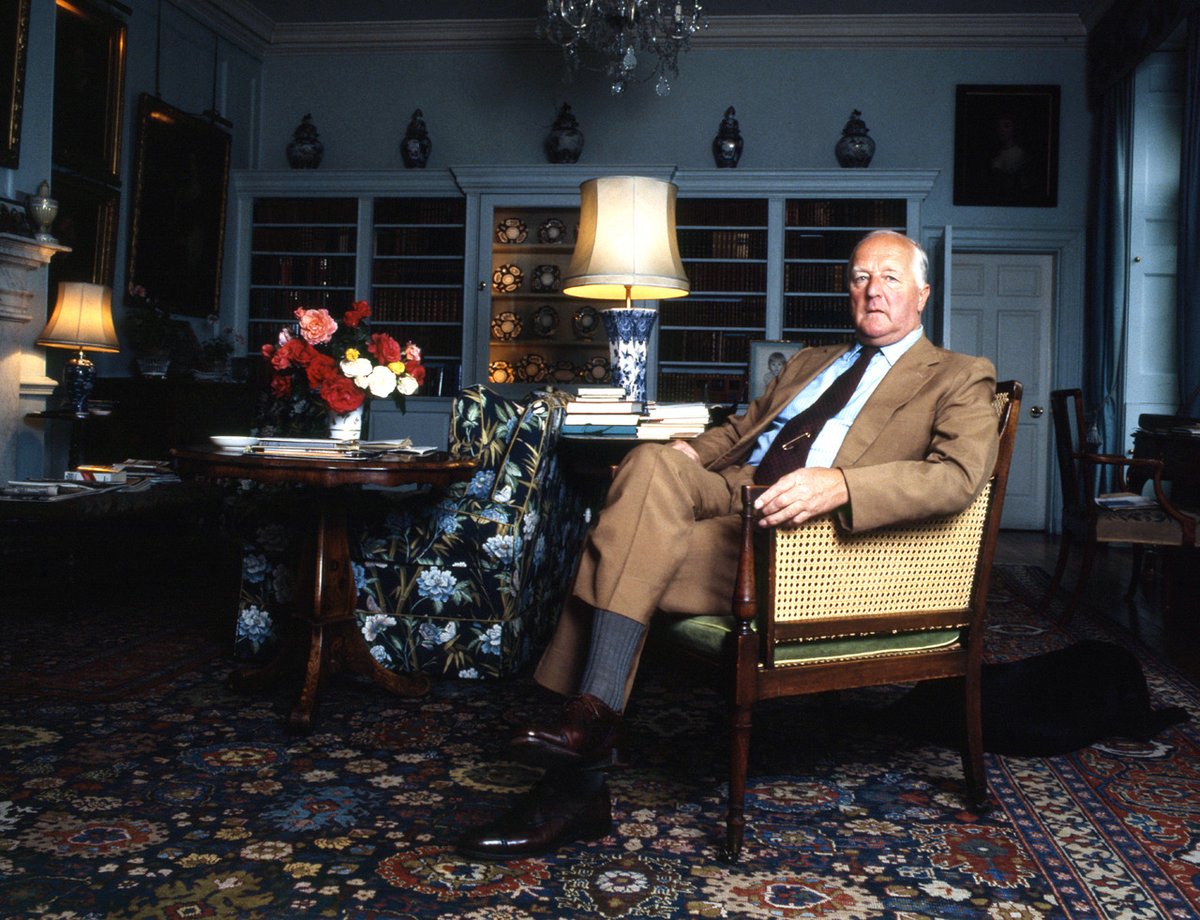
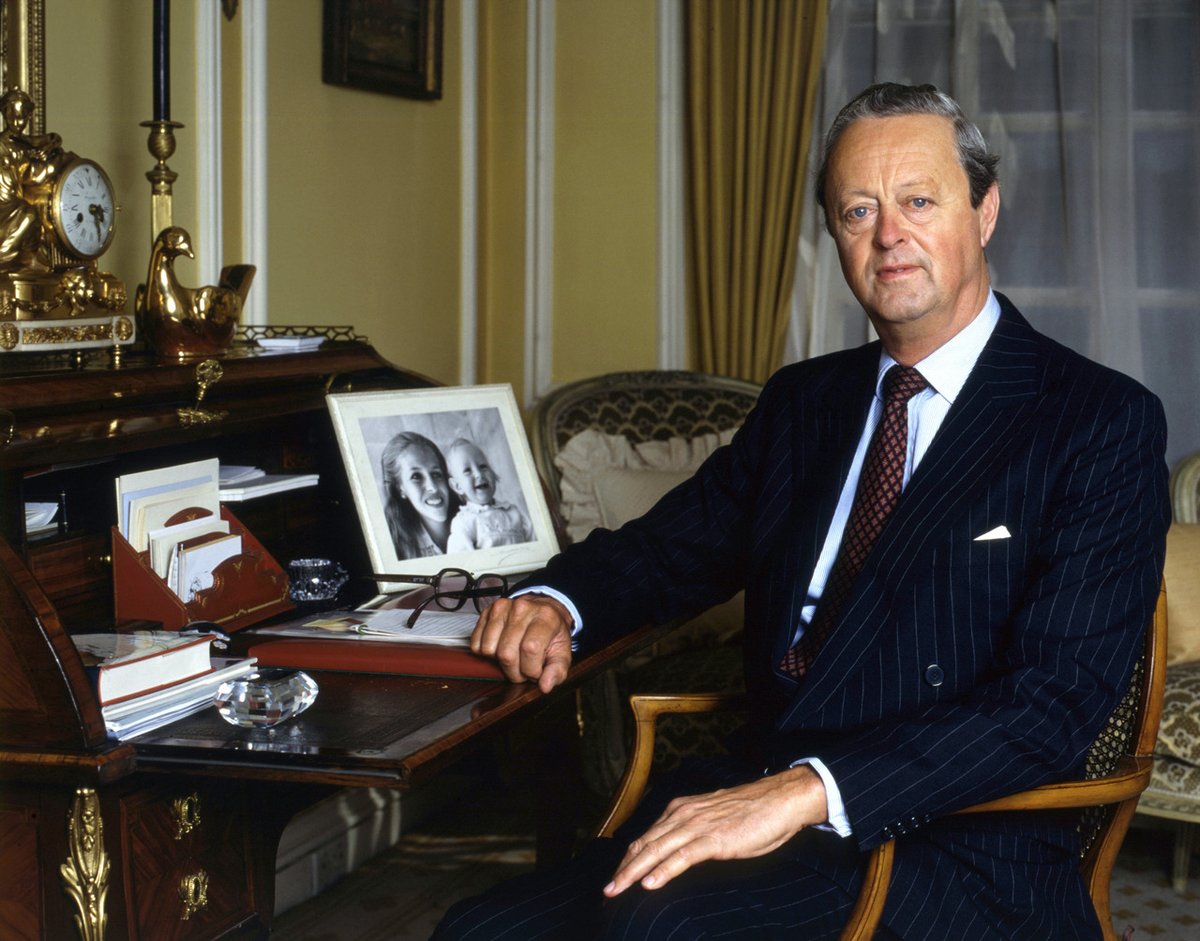
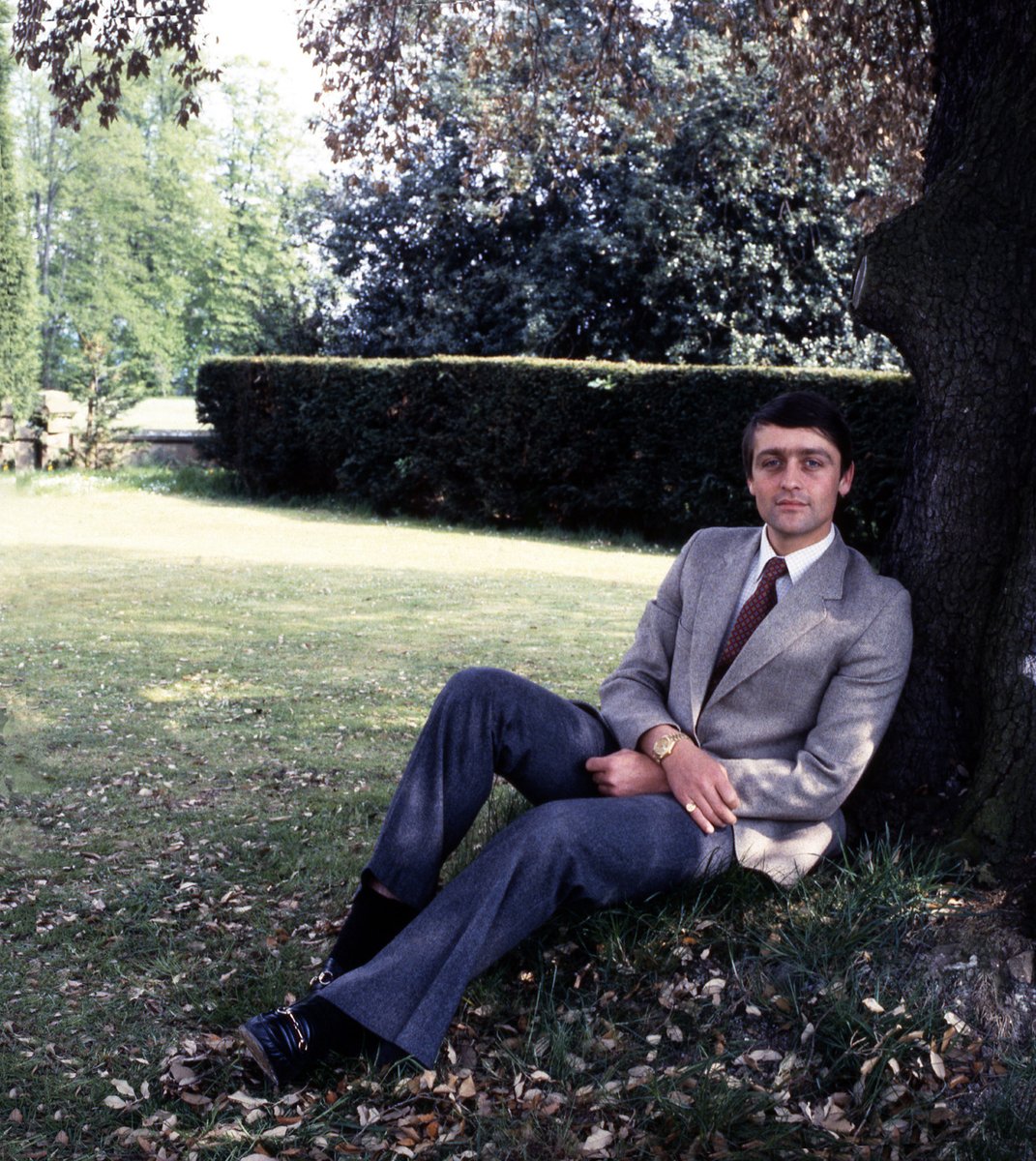
• • •
Missing some Tweet in this thread? You can try to
force a refresh


